

Sound System Rental Business Plan [Sample Template]
By: Author Tony Martins Ajaero
Home » Business Plans » Entertainment Sector
Do you want to start a sound system rental business and need to write a plan? If YES, here is a sample sound system rental business plan template & FREE feasibility report.
Sound system rental business is one of the many business ideas that can possibly thrive not just in the United States of America, but also all across the globe as long as parties and public events are organized. The truth is that anyone who intends to organize a party or public event would need to rent sound systems because it is not the norm for people to keep large sound systems in their homes.
Starting a sound system rental business requires reasonable startup capital, but it is indeed a money-spinning business if it is well located and if you are able to purchase effective and excellent sound systems.
If you are certain that starting a sound system rental business is what you truly want to do after you must have conducted your market research and feasibility studies, then you need to write a good business plan; a detailed blueprint of how you intend raising your seed capital , setting up the business, managing the flow of the business, sorting out tax and marketing your services.
Here is a sample sound system rental business plan template that will help you successfully write yours without stressing yourself.
A Sample Sound System Rental Business Plan Template
1. industry overview.
Sound system rental business is part of the party supply rental industry and companies that operate in the industry basically engage in renting out party supplies such as tables, chairs, flatware, linens, centerpieces, stages, tents, canopies, public address system (sound systems), red carpet, drums, plates, glasses, cutleries and other items for public and private parties and events.
In the face of economic recovery, the overall revenue generated in the party supply rental industry shrunk slightly in 2020 as businesses and consumers wary of the recent recession held off on event spending.
On the other hand, renewed assurance in the economy in successive years has encouraged business and consumers to host events that require products from the Party Supply Rental industry. Continued economic recoveries will likely aid growth through 2022.
So also, with higher personal and corporate income, households and businesses are projected to expand their party budgets, which will allow them to spend more on rentals beyond basic necessities to full-service products et al.
Statistics has it that the Party Rental industry in the United States of America is worth about $5 billion, with an estimated growth rate of 2.3 percent between 2015 and 2020. There are about 9,645 registered and licensed party rental businesses in the United States and they are responsible for employing about 50,470 people.
In the United States, only Classic Party Rental Company can boast of having a lion market share in the industry. Despite that, the industry is still very much open for competition.
According to report recently published by IBISWORLD, in the United States, the regions that have the greatest concentration of sound system rental companies are the Southeast, the West, the Great Lakes and the Mid-Atlantic. The distribution of companies is based mainly on the number of households and median income levels by region.
Besides, party rental cum tent rental companies tend to locate their business near major metropolitan areas, which generate a steady stream of demand for corporate and social events . The Southeast region has the greatest concentration of industry establishments, estimated at 31.9 percent of the total in 2015.
The Southeast is the most populated region of the United States; therefore, given the high proportion of households, there is a greater demand for tent rental and rental supplies for social events and corporate events.
No doubt the party supply rental industry is indeed a profitable industry to venture in despite the fact that that the entry bar for starting the business is not too difficult to scale through.
The truth is that, if a sound system rental business is well – stocked with standard and latest sound systems and also well positioned in an environment with the right demography, they will sure attract regular clients and their items will be well booked all through the year.
2. Executive Summary
Jake Austin® Sound System Rental Services, Inc. is incorporated under the law of the United States of America and the business will be located in Los Angeles – California.
We are a well-organized and well-equipped sound system rental company that will be involved in renting out different types and sizes of sound systems (speakers, mixers, and other sound equipment) for public and private parties and events. We will engage in wedding rentals , birthday rentals, corporate event rentals, banquets, political rallies and other event rentals.
Jake Austin® Sound System Rental Services, Inc. is a client-focused and result driven sound system rental outfit that provides standard and reliable party equipment at an affordable fee that won’t in any way put a hole in the pocket of our clients.
Jake Austin® Sound System Rental Services, Inc. will at all times demonstrate her commitment to sustainability, both individually and as a firm, by actively participating in our communities and integrating sustainable business practices wherever possible.
We will ensure that we hold ourselves accountable to the highest standards by meeting our client’s needs precisely and completely.
Jake Austin® Sound System Rental Services, Inc. is family business that is owned by Jake Austin and her immediate family members. Ruston Branch has a BSc. in Business Administration from the University of Texas and an MBA in Finance from the University of California.
Ruston who is a native of Jonesboro, Arkansas, began his career at Walmart as a summer associate at the company’s distribution center . He was also an assistant manager and a buyer trainee.
3. Our Products and Services
Jake Austin® Sound System Rental Services, Inc. is in the party supply rental industry to service a wide range of clients and of course to make profits, which is why we will ensure we go all the way to make available a wide range of sound systems from top manufacturing brands in the United States and other countries of the world.
Our product offerings are listed below;
- Sound system rentals (speakers, mixers, and other sound equipment) and public address system
- Other related rental services
4. Our Mission and Vision Statement
Our vision is to become a sound system rental business that other players in the industry look up to for direction is our ultimate vision.
We are a company that is equipped to make available a wide range of sound system (speakers, mixers, and other sound equipment) to clients who wants to rent them for their parties, private and public events.
Business Structure
Jake Austin® Sound System Rental Services, Inc. is a sound system rental company that plans to start small in Los Angeles – California, but looks to grow big in order to compete favorably with leading brands throughout the United States of America.
We are aware of the importance of building a solid business structure that can support the kind of world class sound system rental business we want to own. This is why we are committed to only hiring the best hands within our area of operation.
At Jake Austin® Sound System Rental Services, Inc., we will ensure that we hire people that are qualified, hardworking, creative, customer centric and are ready to work to help us build a prosperous business that will benefit all the stakeholders (the owners, workforce, and customers).
As a matter of fact, profit-sharing arrangement will be made available to all our senior management staff and it will be based on their performance for a period of five years or more as agreed by the board of trustees of the company. In view of the above, we have decided to hire qualified and competent hands to occupy the following positions in our organization;
- Chief Executive Officer (Owner)
- Manager/Admin and HR Manager
Marketing and Sales Executive
- Customer Services Executive
- Truck Driver
5. Job Roles and Responsibilities
Chief Executive Office:
- Increases management’s effectiveness by recruiting, selecting, orienting, training, coaching, counseling, and disciplining managers; communicating values, strategies, and objectives; assigning accountabilities; planning, monitoring, and appraising job results
- Creates, communicates, and implements the organization’s vision, mission, and overall direction – i.e. leading the development and implementation of the overall organization’s strategy.
- Responsible for fixing prices and signing business deals
- Responsible for providing direction for the business
- Responsible for signing checks and documents on behalf of the company
- Evaluates the success of the organization
- Manages the rental of sound systems
- Achieves maximum profitability and over-all success by controlling costs and quality of equipment and service.
- Responsible for overseeing the smooth running of HR and administrative tasks for the organization
- Maintains office supplies by checking stocks; placing and expediting orders; evaluating new products.
- Ensures operation of equipment by completing preventive maintenance requirements; calling for repairs.
- Defines job positions for recruitment and managing interviewing process
- Carries out induction for new team members
- Responsible for training, evaluation and assessment of employees
- Responsible for arranging travel, meetings and appointments
- Oversees the smooth running of the daily office activities.
- Identifies, prioritizes, and reaches out to new partners, and business opportunities et al
- Writes winning proposal documents, negotiate fees and rates in line with company policy
- Responsible for handling business research, marker surveys and feasibility studies for the organization
- Responsible for supervising implementation, advocate for the customer’s needs, and communicate with clients
- Documents all customer contact and information
- Represents the company in strategic meetings
- Helps to increase sales and growth for the company
- Responsible for preparing financial reports, budgets, and financial statements for the organization
- Provides managements with financial analyses, development budgets, and accounting reports
- Responsible for financial forecasting and risks analysis.
- Performs cash management, general ledger accounting, and financial reporting for one or more properties.
- Responsible for developing and managing financial systems and policies
- Responsible for administering payrolls
- Ensures compliance with taxation legislation
- Handles all financial transactions for the company
- Serves as internal auditor for the company
Client Service Executive
- Welcomes guests and clients by greeting them in person or on the telephone; answering or directing inquiries.
- Ensures that all contacts with clients (e-mail, walk-In center, SMS or phone) provides the client with a personalized customer service experience of the highest level
- Through interaction with clients on the phone, uses every opportunity to build client’s interest in the company’s products and services
- Manages administrative duties assigned by the manager in an effective and timely manner
- Consistently stays abreast of any new information on the company’s products, promotional campaigns etc. to ensure accurate and helpful information is supplied to clients when they make enquiries
Truck Driver:
- Responsible for transporting sound systems and workers to site
- Runs errand for the organization
- Handles any other duty as assigned by the manager.
6. SWOT Analysis
Due to our knack for details, we were able to work with result driven business consultants in Los Angeles – California to look through our business concept and together we were able to critically examine the prospect of the business and to access ourselves to be sure we have what it takes to run a standard and world – class sound system rental business.
In view of that, we were able to take stock of our strengths, our weakness, our opportunities and also the threats that we are likely going to be exposed to in Los Angeles – California. Here is a preview of what we got from the critically conducted SWOT Analysis for Jake Austin® Sound System Rental Services, Inc.;
Some of our key strength as a sound system rental business is that we have multiple dozens of each of the types and sizes of the sound systems, meaning that even if the request doubled overnight, we can still meet up, we offer free deliveries and pickups and we are centrally positioned in a city that is notable for political rallies, public and private events and parties on a regular basis.
One obvious weakness that we will be confronted with is the fact that we are only operating from a location especially when compared that sound system rental businesses that runs franchise or operate from different locations.
- Opportunities:
The opportunities in the party supply rental industry is massive considering the number of corporate events, weddings, parties, political rallies and other events that takes places on a daily basis in the United States. As a standard and well – equipped sound system rental company, we are ready to take advantage of any opportunity that comes our way.
Some of the threats that we may likely face as a sound system rental company operating in the United States are unfavorable government policies , the arrival of a competitor within our location of operation and global economic downturn which usually affects the rate at which people organize parties and other public events.
7. MARKET ANALYSIS
- Market Trends
One thing is certain; it is difficult to find a business that is strictly into just sound system rentals. This is so because such a business will find it difficult to maintain its overhead and operational cost or generate enough income needed for business expansion.
In recent time, it is common to find sound system rental companies engage in other complimentary services such as event planning services, other party rentals and the likes. The party supply rental industry is in a continuous state of evolution and as such, ground breaking strategies and ideas that were once highly successful are no longer as productive as they were in time past.
Close observation of the trend in the industry reveals that the past few years have seen the rise and proliferation of social media and new tech tools. The trends also extend to increased attention paid to engagement and new market segments, adopting eco-friendly measures and sustainability when planning events, and of course increase in demands from event sponsors.
8. Our Target Market
Although Jake Austin® Sound System Rental Services, Inc. will initially serve individual clients, small to medium sized business, and then to well established businesses and corporate clients, but that does not in any way stop us from growing to be able to compete with the leading companies in the United States.
Our target market cuts across people of different class and people from all walks of life, local and international organizations as well.
We are coming into the industry with a business concept that will enable us work with the highly placed people and companies in the country and at the same time smaller businesses. Below is a list of the people and organizations that we have specifically design our products and services for;
- Event Planners
- Party Planners
- Wedding Planners
- Corporate Organizations
- Religious Organizations
- Political Parties/Politicians
- Households/Families
- The Government (Public Sector)
- Schools (High Schools, Colleges and Universities)
- Sport Organizations
Our Competitive Advantage
We are fully aware that to be highly competitive in the event party supply rental industry means that your sound systems must be of high standard and your business must be well – positioned, you should be able to deliver consistent quality service and you should be able to meet the expectations of both participants and organizers of events.
Jake Austin® Sound System Rental Services, Inc. might be a new entrant into the party supply rental industry in the United States of America, but the management are licensed and highly qualified to run such business; people who have the magic wand to turn a startup into a mega business.
Our sound systems are of world class standard and the business is well positioned and well – equipped to meet the 21 st century demand. These are part of what will count as a competitive advantage for us.
Last of all, our employees will be well taken care of, and their welfare package will be amongst the best within our category (startups sound system rental companies) in the industry meaning that they will be more than willing to build the business with us and help deliver our set goals and achieve all our aims and objectives.
9. SALES AND MARKETING STRATEGY
We are mindful of the fact that there is stiff competition amongst sound system rental companies in the United States of America; hence we have been able to hire some of the best business developers to handle our sales and marketing concerns.
Our sales and marketing team will be recruited based on their vast experience in the industry and they will be trained on a regular basis so as to be well equipped to meet their targets and the overall goal of the organization. We will also ensure that our excellent job deliveries speak for us in the market place.
Our goal is to grow our sound system rental company to become one of the top 10 sound system rental companies in the United States of America which is why we have mapped out strategies that will help us take advantage of the available market and grow to become a major force to reckon with not only in the Los Angeles – California but also in other cities in the United States of America.
Jake Austin® Sound System Rental Services, Inc. is set to make use of the following marketing and sales strategies to attract clients;
- Introduce our business by sending introductory letters alongside our brochure to event planners, corporate organizations, religious organizations, schools, households and key stake holders in Los Angeles and other cities in and around California
- Advertise our business in relevant event related magazines, newspapers, TV stations, and radio station.
- List our business on yellow pages ads (local directories)
- Attend relevant international and local expos, seminars, and business fairs et al
- Create different packages for different category of clients in order to work with their budgets and still deliver quality supply and services to them
- Leverage on the internet to promote our business
- Engage direct marketing approach
- Encourage word of mouth marketing from loyal and satisfied clients
- Join local chambers of commerce and industry with the aim of marketing our business
- Make use of attractive hand bills to create awareness and also to give direction to our facility
- Adopt direct mailing coupon marketing approach
- Position our signage / flexi banners at strategic places in and around Los Angeles – California
- Create a loyalty plan that will enable us reward our consistent clients especially those that refer clients to us
Sources of Income
Jake Austin® Sound System Rental Services, Inc. is established with the aim of maximizing profits in the party supply rental industry and we are going to go ensure that we do all it takes to attract clients on a regular basis. Jake Austin® Sound System Rental Services, Inc. will generate income by offering the following party supply rental services;
10. Sales Forecast
It is a fact that there would always be parties, indoor and outdoor events in the United States of America and as such the services of sound system rental companies will always be needed.
We are well positioned to take on the available market in Los Angeles – California, scale all up our income on a regular basis and we are quite optimistic that we will meet our set target of generating enough income/profits from the first six months of operation and grow the business and our clientele base beyond Los Angeles – California to other cities in California and other states in the U.S.
We have been able to critically examine the party supply rental market and we have analyzed our chances in the industry and we have been able to come up with the following sales forecast. The sales projections are based on information gathered on the field and some assumptions that are peculiar to startups in Los Angeles – California.
Below are the sales projection for Jake Austin® Sound System Rental Services, Inc., it is based on the location of our business and the wide range of sound systems and public address systems that we will be offering;
- First Fiscal Year (FY1): $240,000
- Second Fiscal Year (FY2): $300,000
- Third Fiscal Year (FY3): $500,000
N.B: This projection is done based on what is obtainable in the industry and with the assumption that there won’t be any major economic meltdown and natural disasters within the period stated above. There won’t be any major competitor offering same services as we do within same location. Please note that the above projection might be lower and at the same time it might be higher.
11. Our Pricing Strategy
At Jake Austin® Sound System Rental Services, Inc. we will keep the fees for renting our sound systems below the average market rate by keeping our overhead low and by collecting payment in advance. In addition, we will also offer special discounted rates to start – ups, nonprofits, cooperatives, and small social enterprises.
- Payment Options
The payment policy adopted by Jake Austin® Sound System Rental Services, Inc. is all inclusive because we are quite aware that different customers prefer different payment options as it suits them but at the same time, we will ensure that we abide by the financial rules and regulation of the United States of America.
Here are the payment options that Jake Austin® Sound System Rental Services, Inc. will make available to her clients;
- Payment with cash
- Payment via credit cards
- Payment via online bank transfer
- Payment via check
In view of the above, we have chosen banking platforms that will enable our client make payment for renting our sound systems without any stress on their part. Our bank account numbers will be made available on our website and promotional materials.
12. Publicity and Advertising Strategy
We are set to take the event planning and party rental industry by storm which is why we have made provisions for effective publicity and advertisement of our sound system rental company. Below are the platforms we intend to leverage on to promote and advertise Jake Austin® Sound System Rental Services, Inc.;
- We will place adverts on both print (community – based newspapers and magazines) and electronic media platforms
- We will sponsor relevant community – based events/programs
- We will leverage on the internet and social media platforms like; Instagram, Facebook, twitter, YouTube, Google + et al to promote our brand
- We will install our Bill Boards in strategic locations all around Los Angeles – California
- We will distribute our fliers and handbills in target areas
- We will ensure that all our workers wear our branded shirts and all our vehicles and trucks are well branded with our company’s logo et al.
13. Startup Expenditure (Budget)
From our market survey and feasibility studies , we have been able to come up with a detailed budget on achieving our aim of establishing a standard and highly competitive sound system rental business in Los Angeles – California and here are the key areas where we will spend our startup capital on;
- The total fee for incorporating the Business in the United States of America- $750 .
- The budget for basic insurance policy covers, permits and business license – $2,500
- The Amount needed to acquire a suitable facility that will accommodate our sound systems, public address systems, trucks and small office facility (Re – Construction of the facility inclusive) – $150,000 .
- The cost for equipping the office (computers, software applications, printers, fax machines, furniture, telephones, filing cabins, safety gadgets and electronics et al) – $ 5,000
- The cost of launching an official Website – $600
- The cost for the construction of standard tents – $10,000
- The cost for the purchase of standard sound systems and public address systems – $100,000
- The cost for the purchase of a truck – $10,000
- Budget for paying at least 4 employees for 2 months plus utility bills – $60,000
- Additional Expenditure (Business cards, Signage, Adverts and Promotions et al) – $2,500
- Miscellaneous: $5,000
Going by the report from the market research and feasibility studies conducted, we will need about three hundred and fifty thousand ( 350,000 ) U.S. dollars to successfully set – up a medium scale but standard and well – equipped sound system rental business firm in the United States of America.
Generating Funds/Startup Capital for Jake Austin® Sound System Rental Services, Inc.
Jake Austin® Sound System Rental Services, Inc. is owned by Mr. Jake Austin and his immediate family members. They are the only financiers of the business, but may likely welcome partners later which is why they decided to restrict the sourcing of the startup capital for the business to just three major sources.
These are the areas we intend generating our start – up capital;
- Generate part of the startup capital from personal savings
- Source for soft loans from family members and friends
- Apply for loan from the Bank
N.B: We have been able to generate about $150,000 ( Personal savings $100,000 and soft loan from family members $50,000) and we are at the final stages of obtaining a loan facility of $200,000 from our bank. All the papers and document have been duly signed and submitted, the loan has been approved and any moment from now our account will be credited.
14. Sustainability and Expansion Strategy
The future of a business lies in the number of loyal customers that they have, the capacity and competence of their employees, their investment strategy and business structure. If all these factors are missing from a business (company), then it won’t be too long before the business closes shop.
One of our most important goals of starting Jake Austin® Sound System Rental Services, Inc. is to build a business that will survive off its own cash flow without the need for injecting finance from external sources once the business is officially running.
We know that one of the ways of gaining approval and winning customers over is to rent out our sound systems and public address systems a little bit lower than what is obtainable in the market and we are prepared to survive on lower profit margin for a while.
Jake Austin® Sound System Rental Services, Inc. will make sure that the right foundation, structures and processes are put in place to ensure that our staff welfare are well taken of. Our company’s corporate culture is designed to drive our business to greater heights and training and retraining of our workforce is at the top burner.
We know that if that is put in place, we will be able to successfully hire and retain the best hands we can get in the industry; they will be more committed to help us build the business of our dreams.
Check List/Milestone
- Business Name Availability Check: Completed
- Business Incorporation: Completed
- Opening of Corporate Bank Accounts: Completed
- Opening Online Payment Platforms: Completed
- Application and Obtaining Tax Payer’s ID: In Progress
- Application for business license and permit: Completed
- Purchase of All form of Insurance for the Business: Completed
- Securing a standard facility and reconstruction inclusive: In Progress
- Conducting Feasibility Studies: Completed
- Generating part of the start – up capital from the founder: Completed
- Applications for Loan from our Bankers: In Progress
- Writing of Business Plan: Completed
- Drafting of Employee’s Handbook: Completed
- Drafting of Contract Documents: In Progress
- Design of The Company’s Logo: Completed
- Printing of Promotional Materials: Completed
- Recruitment of employees: In Progress
- Purchase of the needed furniture, office equipment, electronic appliances and facility facelift: In progress
- Purchase of various types and sizes of standard sound systems and public address systems: Completed
- Creating Official Website for the Company: In Progress
- Creating Awareness for the business (Business PR): In Progress
- Health and Safety and Fire Safety Arrangement: In Progress
- Establishing business relationship with vendors, event planners, churches and key players in the industry: In Progress
Related Posts:
- Indoor Playground Business Plan [Sample Template]
- Online Lottery Business Plan [Sample Template]
- Party Supply Business Plan [Sample Template]
- Talent Management Agency Business Plan [Sample Template]
- Concert Promoter Business Plan [Sample Template]

JavaScript is not available
We are unable to load JavaScript in your browser. Please enable JavaScript or switch to a supported browser to continue using EquipmentRadar.com.
© 2024 Equipment Radar, LLC
Guide To Starting A Profitable Equipment Rental Company In 2021
Sept. 18, 2021
The equipment rental industry has outgrown the overall construction industry over the past few decades. Learn how you can start your own equipment rental company.
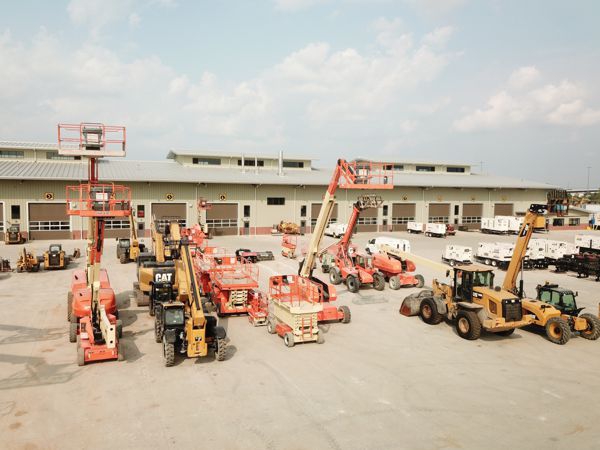
Equipment Rental Industry Overview
Owning and operating an equipment rental business can be very rewarding and profitable. Many equipment rental business owners started out with one used machine, and gradually built up their businesses through hard work, great customer service and maintaining a fresh and healthy equipment fleet.
Starting an equipment rental company is not as expensive or encumbering as you would think. With some careful planning, initial capital, and passion for the industry, you can start your own equipment rental company in a few weeks.
The equipment rental industry has grown at about 5% per year over the past few decades. The outlook for the industry is very positive, with many industry experts forecasting 4-5% annual growth over the coming years. The long-term shift by contractors to rent more equipment is causing the equipment rental industry to outgrow the overall construction industry.
Equipment Rental Industry Market Share
The equipment rental industry is very fragmented - this means that the vast majority of industry sales are generated by small and medium-sized rental companies. According to the American Rental Association (ARA), the top 10 equipment rental companies have about 35% market share, and the top 3 companies have about 25% market share.
The largest North American equipment rental companies include United Rentals , Sunbelt Rentals , Herc Rentals , Home Depot Rentals , and Ahern Rentals . The total annual industry sales are over $50 billion, and the long-term growth rate is about 5% per year.

Source: United Rentals and Equipment Radar Takeaway: The top three industry players have a 25% combined market share. This means the industry is very fragmented and comprised mostly of small and medium-size companies.

Source: United Rentals , American Rental Association (ARA) , Rental Equipment Register (RER) , and US Census Bureau Takeaway: The US Equipment Rental industry size is over $50 billion, with a growth rate of about 5% each year.
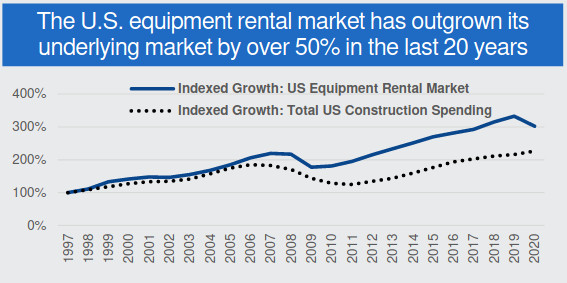
Source: United Rentals, ARA, RER, and US Census Bureau Takeaway: The US Equipment Rental industry has outgrown overall construction spending since 1997.
Equipment Rental Covers More Than Just Construction Machinery
Many equipment rental companies augment their equipment fleets to include general tools, HVAC, power generation, and event (party, wedding, concerts, etc) equipment.
The ARA segments the rental industry into three primary categories:
- Construction and Industrial Equipment: This category primarily serves construction firms and contractors. Equipment typically includes earthmoving equipment such as excavators, loaders, backhoes and compaction machinery, light towers, aerial work platforms. This segment can also include road infrastructure, energy projects, commercial buildings, malls, demolition and more.
- DIY General Tool Equipment: This category includes equipment typically rented by professional contractors and do-it-yourself (DIY) homeowners. Equipment includes small and light construction equipment such as power tools, air compressors, aerators, lawn tractors, compact tractors, skid-steer loaders and small excavators, etc.
- Party/Wedding/Event Equipment: This category includes equipment rented by consumers, homeowners and businesses for parties and events. Items can include tents, tables, chairs, lights, dance floors, decorations, linens, plates and glassware, portable restrooms, concession equipment, inflatables (moonwalks), and other furniture. Projects can range from large corporate events to small family gatherings.
When you start your rental company, you can choose to serve one or more categories. Many established rental companies offer an all-in-one stop rental offering. You should research your local market demand for each category to understand which suits your local market best.
Aerial lifts and earthmoving equipment tend to be popular categories for equipment rental companies. When you choose your categories, you should study the local rental rates, seasonality (demand fluctuates through the year based on weather and construction patterns) and competition.
Herc Rentals Equipment Fleet Mix

Source: Herc Rentals Takeaway: Large rental companies such as Herc Rentals have diverse fleets. Both United Rentals and Herc Rentals have placed increased focus on expanding into the specialty rentals category over the past few years.
Equipment Rental Customers
The equipment and event rental industry offers customers the opportunity to gain the benefit of using goods (from excavators and aerial lifts to party tents) for a defined time. Customers are attracted to rentals instead of purchasing equipment for multiple reasons, including:
- Control expenses and inventory
- Wide selection of equipment
- Professional customer care / service
- No need for maintenance or downtime
- Save on storage / warehousing
- Reliability
- Equipment tracking
- Conserve capital
- Manage risk
Customers can range from professional contractors who need aerial lifts for several months to an average homeowner who needs a stump grinder for a weekend project.
Steps to Starting Your Equipment Rental Business
1. business plan.
Every great business out there today started with a simple idea. To transform that idea from something imaginary into something real, you should make a business plan that outlines your strategy and thoughts. Writing a business plan is one of the best ways to force yourself to think about your business from many angles. It also is a helpful document to share with potential investors and lenders.
When you create your business plan, it is important to keep your expectations realistic. Setting goals and metrics too high at the beginning can lead to wasted time and money down the road. Remember that there are always unforeseen costs and challenges with any new venture, so it is prudent to bake in padding and leeway.
A typical business plan includes the following sections:
- Summary: Wait to write this at the end. This is the 30,000-foot view of your entire business plan summarized in a few paragraphs. This helps others understand the business plan without reading the entire document.
- Company Description: Write about what your company will do, who it will involve (you and any others), where it will be located, what kind of equipment you will buy for your fleet, what hours you plan on working, etc.
- Market Analysis: Understand the rental industry in your area. Get to know the rental rates in your area. Talk with people in the industry to understand who your main customers would include.
- Competitive Analysis: List out the competition, what they do, how big they are, and how you plan to offer a better value proposition.
- Product/Service Offering: Determine which types of equipment you will offer for rent. Also, make a road map of where you plan on expanding as your business grows. Will you offer parts and service too?
- Marketing Plan: Figure out how you will tell the world about your new company. Create social media pages and advertise in local publications. Make sure you add your business to online directories such as Google Maps and the Equipment Radar Directory so people can find it.
- Financial Plan: Spend a lot of time thinking about the capital resources you have to deploy and how you plan on deploying them. Most equipment rental companies borrow money from banks to make new and used machinery purchases. Figure out which lenders you can work with to buy your machinery.
2. Form Your Company
You should create a legal entity such as a corporation or LLC to separate your business interests from your personal interests. You must register your business with your state, pay a registration fee, and also register with the IRS . Once you have formed your company, you should open a bank account and deposit initial capital into it.
3. Purchase New or Used Equipment For Fleet
Many newly-formed rental companies start with just one used machine, and later they upgrade and expand their fleets over time. You can shop online for new and used equipment to buy your first equipment.
4. Create Safety & Risk Management Plans
Buy proper insurance to cover your business from accidents and injuries. Talk with your business insurer, so you understand what is covered and what is not covered.
Create safety guidelines for your shop, and teach employees how to handle the equipment safely. Make sure any dangerous areas in your storage or warehouse are safeguarded.
5. Organize Business Operations
Choose a store location. You will need enough space to store your equipment, an office area for you and other workers to work, a service area, a check-in/out counter to handle customers, and a showroom for equipment, accessories and more.
A nice-looking showroom can be a strong selling point for your business. It gives your customers an opportunity to look around and see what you have to offer. You should think of your showroom as your marketing platform.
6. Make Maintenance & Fleet Refresh Plan
You should pay close attention to the condition of your fleet. Inspect it after every rental, and perform both scheduled and unscheduled maintenance as needed. The top-performing rental companies typically have a systematized process to inspect, clean and renew equipment after it is returned from a job site.
As your equipment begins to age, you should consider selling your older equipment and buying newer equipment to keep your overall rental fleet relatively new. Large rental companies typically target an average fleet age of about 50 months (4 years old), which means that they sell equipment when it gets to be about 7-8 years old. Customers often prefer newer equipment that looks good.
Financial Planning
Rental rates.
Rental rates are often determined by local supply and demand for rental equipment in your area. Rates go up and down based on time of year, type of equipment and equipment condition.
Rental rate changes are very important to monitor. Each $1 change in rental rate is a $1 increase or decrease to the bottom line. When your rental rate changes, your other costs do not change much.
Typically most companies will provide daily, weekly and monthly rental rates. As the rental term extends, the average daily rate tends to go lower. Weekly and monthly rentals can often be more profitable for equipment rental companies even if their average daily rental rates are lower because there are not as many inefficiencies associated with them (transportation to and from the location, downtime for inspection and servicing, etc).
Utilization
Utilization is an important metric that you should watch carefully. Higher utilization typically means higher profitability. The equipment rental business is largely a fixed-cost business - your equipment, building lease, employee costs all stay about the same whether you have your equipment out on rent or not.
Utilization is a two-edged sword. If your utilization is too high and you do not have any equipment available for rent, then customers may be forced to go with a competitor. It's best to increase your fleet size if utilization goes too high, and reduce your fleet size if your utilization goes too low.
Seasonality
Construction tends to be very seasonal, depending on your geographic location. You should research the swings in seasonality to understand business trends during the busy summertime and slower wintertime.
Cyclicality
Equipment rental is susceptible to economic cycles. When the broader economy slows and construction pulls back, the demand for rental equipment also slows. Typically rental rates will soften or fall during a downturn.
Rental Industry Terms & Metrics
The industry uses several common terms to measure equipment fleets and financial performance. Below is a list created by the ARA to help you get acquainted with industry standards:
Original Equipment Cost (OEC)
Time (physical) utilization (tu), financial utilization ($u), fleet age (age), change in rental rate %rr.
Keeping a fresh fleet that is well-maintained and serviced is very important to managing customer relations and expectations. Typically rental companies will target an average age for the entire fleet. By regularly buying newer equipment and selling older equipment, the rental company can maintain a constant fleet age.
Below is a sample overview of United Rental's fleet statistics from its 2020 annual report :
| Item | 2020 | 2019 |
| Fleet OEC (billions) | $13.8 | $14.6 |
| Equipment Units | 615,000 | 665,000 |
| Fleet Age In Months | 55 | 50 |
Starting your own equipment rental company is within the realm of possibilities. Spend time researching your local market and creating a business plan, and soon enough, you will be ready to launch your new venture.
Find Similar Articles By Topic
#construction #material handling #United Rentals #Herc Rentals #Sunbelt Rentals #checklists
Your trusted equipment navigator
© 2024 Equipment Radar LLC
- Search Listings
(786) 713-4996 --> --> sales@equipmentradar.com

Our site uses cookies. By using our site you agree to our Cookie Policy
- Resources for Entrepreneurs > Starting a Business > Entrepreneur Ideas
Starting a Sound Equipment & Systems Sales, Rental, & Leasing Business

Entrepreneur Ideas
Opening a sound equipment and systems sales, rental, and leasing business can get you on the path to a secure financial future if you do it right. We provide a friendly, comprehensive guide that instructs you on how to start your business.
Thinking about opening a sound equipment and systems sales, rental, and leasing business? We tell you what you need to know to get started.
How to Write an Effective Sound Equipment & Systems Sales, Rental, & Leasing Company Business Plan
It's virtually impossible for your sound equipment and systems sales, rental, and leasing business to succeed without an effective business plan.
The best business plans are practical documents that reflect actual business realities. To be reliable, your business plan can't include best guesses or intentional exaggerations.
Instead, commit to creating the most precise business plan possible. As a further guide, consider what the experts say about business plan writing .
Evaluate Competitors
Before you open a sound equipment and systems sales, rental, and leasing business in your town, it's a smart move to determine how you will fit in the competitive landscape. Try our link below to generate a list of competitors near you. Simply enter your city, state and zip code to get a list of sound equipment and systems sales, rental, and leasing businesses in your town.
- Find Competing Sound Equipment & Systems Sales, Rental, & Leasing Businesses
How tough is the competition in the market you are considering? If the competition is too tough, you may need to think about starting the business in a different area or even start a completely different business instead.
Studying the Market
If you are interested in starting a sound equipment and systems sales, rental, and leasing business, you really ought to learn as much as you can from somebody who is already in the business. If you think owners of nearby sound equipment and systems sales, rental, and leasing businesses will give you advice, think again. The last thing they want to do is help you to be a better competitor.
Thankfully, an owner of a a sound equipment and systems sales, rental, and leasing business in another town may be more than happy to give you a few tips, given that you don't compete with them in their area. Many business owners are happy to give advice to new entrepreneurs In my experience, you may have to call ten business owners in order to find one who is willing to share his wisdom with you.
So, what can you do to find a sound equipment and systems sales, rental, and leasing business founder in a different locale who can assist you?
It's not that hard. Just use the handy link below and enter in a random city/state or zipcode.
- Find an Experienced Sound Equipment & Systems Sales, Rental, & Leasing Business Entrepreneur
Tips for Buying a Sound Equipment & Systems Sales, Rental, & Leasing Business
There are a lot of reasons why it may be preferable to acquire a sound equipment and systems sales, rental, and leasing business instead of starting a new business venture.
Although buying a sound equipment and systems sales, rental, and leasing business offers several advantages for startup entrepreneurs, there are still several key factors to consider . Right away, you'll want to make sure the business is capable of meeting your ownership expectations.
If the business appears to meet your requirements, you'll need to verify your impressions through broker-assisted due diligence and legal research.
Is Franchising the Right Option?
Being part of a network of franchisees means you are exposed to proven ideas that have been tested and proven over time.
If you are thinking about opening a sound equipment and systems sales, rental, and leasing business, a smart move is to investigate whether buying a franchise could make your life much easier.
The link below gives you access to our franchise directory so you can see if there's a franchise opportunity for you. You might even find something that points you in a completely different direction.
- Franchises for Sale
Related Articles on Starting a Company
These additional resources regarding starting a business may be of interest to you.
Consideration Before Buying a Franchise
Share this article
Additional Resources for Entrepreneurs
Lists of Venture Capital and Private Equity Firms Franchise Opportunities Contributors Business Glossary
- Terms of Use
- Privacy Policy
- Franchise Directory
- Entrepreneurial Resources
- Small Business News
- Gaebler France
- Gaebler Mexico
- Gaebler Philippines
- Gaebler Czech Republic
- Gaebler Germany
- Gaebler China
Copyright © 2001-2024. Gaebler Ventures. All rights reserved.
How To Start An Equipment Rental Business: Your Guide to Success
In this article, we discuss how to start an equipment rental business, what to consider when planning to start your business, and offer proven tips and insights to help your business thrive.
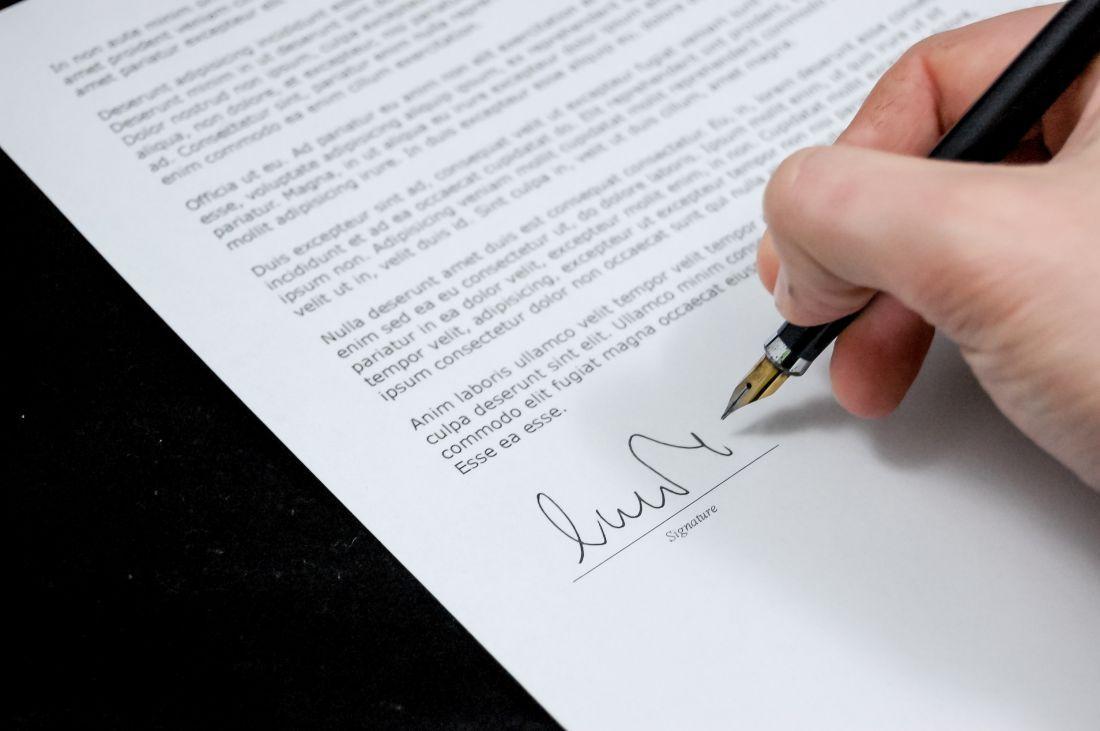
An equipment rental business start-up can be an extremely lucrative and effective form of business or income that you can grow to a (relatively) passive income stream. In order to keep your business viable and profitable, there are several key considerations that you should think about when it comes to administrative functions, hiring out equipment and other elements of your business operations.
Is an equipment rental business profitable?
Before beginning your business, it is important for you to consider if the model will suit your current needs. One of the key ways to do this is to consider a simple question: “Is an equipment rental business profitable?” Equipment rental business profitability can vary greatly depending on your connections, location, ability to procure top-quality equipment in the industry, and more. Because of this, you may begin to find new and best ways to boost your equipment rental business profitability.
Learning how to make your tool rental business profitable comes down to determining what barriers you have to overcome in order to reach success. It is possible to make a rental business profitable and to reinvest that profit to continue gaining additional benefits. However, you must start off with a significant investment in industry-leading tools and equipment to make your business competitive against other competitors.
There is no true limit to the amount of profit that your rental business can make. This is due to the fact that these businesses are easy to delegate, leaving you more opportunity to expand your reach and start new sectors in more profitable areas. Your first rental business will ultimately be a learning experience and can serve as a framework for additional businesses if you feel so inclined.
Most profitable rental equipment
Before you make your equipment investment, you’re likely working to evaluate which investments will get you the most profitable rental equipment. If you plan to serve a certain subsect of the industry, that is vital to take into account. However, if you’re looking to serve the general event and performance space, there are certain timeless pieces that you can begin with, and continue to expand upon over time. Consider conducting micro surveys of individuals in your space through services such as OnePulse or other e-services, allowing you to get real-time data based on current trends. You can also conduct a competitor analysis to determine which offerings are most appropriate for your current phase of business.
How much money do you need to start a rental business?
An equipment rental business can be a significant upfront investment as you purchase your gear, and can continue to offer additional instances of cost for one-time or recurring events — such as repairs or travel and shipment costs. You can also factor a variety of different factors into account, such as:
- Business licensing fees
- Incorporation costs
- Recouperation costs
- Location rent fees or monthly costs
- Other operating costs, such as employee payroll
These elements are important to consider when you’re creating your budget for starting a rental budget of any type. While the cost up front may seem significant, you can easily obtain a small business loan from banking institutions in the form of credit or a lump sum. You can also consider private loans or financing as well.
No matter how you choose to fund your business, you may consider putting together a detailed financial plan and budget for your equipment rental business to show investors exactly what you plan to do with their cost, and how you plan to recoup the amount and pay it back in full. Being as detailed and as up front as possible can help to increase your chances of securing financing on the first few rounds of attempts, and can speed your process to launch.
Equipment rental business model
A business plan can serve as a guiding framework for your business, and acts as your roadmap to success. Your business plan should have all considerations of your business listed, explained, and planned for, ranging from logistical needs to overall short and long-term goals. While there is no explicit equipment rental business model, you will be following a B2C framework if you are dealing in rentals only. Using this, you can craft a thorough business plan for your tool rental business. Below, we’ve listed everything that you should include in your small equipment rental business plan:
Market Analysis
Conducting a market analysis is valuable, and shows investors and stakeholders that you have considered the needs of your target market. This should be toward the front of your business plan, and can illustrate how your business can best meet the needs of your ideal customer. When conducting market analysis, consider including a form of a customer profile timeline, highlighting their journey through your marketing funnel. This isn’t just advantageous to your marketing team and salespeople, this can help you to identify any points of weakness before presenting your business plan, helping you to make it as strong as possible before pitching to investors.
When creating your market analysis, micro-surveys may be helpful, as well as any spec sheets that highlight your specific product features or offerings that can directly address customer needs. You can connect with this concept more by creating customer profiles, otherwise known as personas or avatars. In this part of your analysis, you’ll be identifying core demographic and defining characteristics of your audience, and demonstrating how your products can help each sub-class of your potential customers. Illustrating these concepts with as many visualizations as possible can help you to accurately organize your information in a digestible way. Always be sure to cite your sources, and verify all data points and statistics that you choose to use to protect your credibility.
Competitor Analysis
Now that you know your ideal customer, you will want to analyze your competition. Honesty is vital here, and can more accurately enable you to see what your competitors do well, and what they can improve on. Taking this information and creating strategies that apply to your equipment rental business can help to easily cement your place in the market and elevate you to a viable choice for your ideal customer.
When conducting your competitor analysis, it’s important to leave no stone unturned. Review everything that you can find, including their social media presence across all platforms, customer reviews, website content and ads, as well as their offerings and price points. Be as thorough as possible, as all of this information can inform your own lucrative business and marketing strategy, which we’ll cover next.
Marketing Strategy
Before you launch your business, it’s important to solidify an initial marketing strategy that you will use to begin to reach your ideal customers. Taking a diverse, multi-channel approach to outreach can significantly boost your opportunity to convert your prospects within a shorter timeframe, especially if you rely on your previously created avatars or personas. Taking information learned from your competitor analysis and creating outreach around their gaps can be a great place to start, and you can continue to refine your messaging over time as you determine what “works” for your ideal audience and business.
Your marketing strategy should be dynamic and reach across a wide variety of channels. Beyond doing online ads, you may consider the following social media channels to use when building your presence:
Additionally, there are other avenues of marketing you can use as well, which we’ve summarized below:
- Content Marketing : Content marketing is done through your website and blogs, using organic content and optimizing it to have certain keyword density that is attractive to search engine algorithms. This is usually under the umbrella of SEO, otherwise known as search engine optimization. You can hire a skilled copywriter to assist you in creating your content and optimizing it for Google’s processes.
- Social Media Ads : Beyond simply posting on social media, you can also create ads that are designed to speak to your ideal customers. There are a variety of ads that you can use, most commonly centered around lead generation or retargeted. Every platform has different preferences, so you may consider bringing on an ads specialist or hiring an AI-based service to help you dial in your campaigns.
- Search Engine Marketing : SEM, otherwise known as Search Engine Marketing, is helpful and can place your ads directly on the search page. This is great for brand recognition, especially if your site is built and optimized for people to land on when they click into the ad. An SEO or SEM specialist will be helpful to help you create and launch your campaigns in the search engine.
- Community Outreach : There is still a lot to be said for simple community outreach. You will make a splash with local customers by showing up where they are and building brand awareness — such as farmer’s markets or performances.
Financial Overview
This is the framework budget that you will include to show investors exactly how you will spend your money. You can use your budget that you created when determining if your business will be profitable, and highlight the key figures that you will need to get there. You can make this component of your business plan as effective as possible by using graphics, statistics, and visual mediums to convey your needs easily to key stakeholders that could invest in your business.
Proven tips to start an equipment rental business
Now that you’ve taken the leap to start your own equipment rental business, it’s time to optimize. Below, we’ve compiled a list of the top proven tips to help you through the launch process:
Create a plan for routine servicing and preventative maintenance
Taking the time to create a plan for routine and preventative maintenance for your rental tools is important not only for your team, but also for your investors. This can show that you have anticipated the needs required in order to keep the equipment profitable and protected, offering insight into your plan for longevity and user safety. This can also reduce the amount of customer service complaints and risk. Sharing this plan as part of your business plan is ideal.
Get legal help for your contract drafts
Never launch without a legally binding contract. Hiring on a lawyer to help you draft initial copy for your contracts is a great idea to protect your investments and to keep the interests of all parties as protected as possible.
Invest in an equipment management software system
Investing in a centralized equipment management system can help you to easily navigate equipment location, maintenance needs, team management, and more. Housing this in one simple software can help you to easily access and complete reporting, management tasks, and more. This is one investment that you won’t want to miss.
Launching your equipment rental business has never been easier
A tool rental business is a great business opportunity for 2022, especially as customers are more reliant on tech than ever before. This article offers key insights that you can use to successfully create, launch, and manage your equipment rental business.
- Tips & Tricks
- Applications
- Log in | Signup
- Help Center
- Release log
- Terms of Service
- Cookie Policy
Receive FREE Google Sheets Equipment Database Template
March Spring Special! $500 Boostpoint Coupon.
Gain insight into how to grow your company, maintain healthy business-customer relationships, and time-saving tools and equipment.
5 Things to Include in Your Equipment Rental Business Plan
Whether you're just starting an equipment rental company or looking for ways to improve how you do business this year, it's crucial to create and constantly monitor the business plan that works best for achieving your specific goals.

There are multiple aspects to an equipment rental business plan. It should cover how you plan to make your business successful. Just a few of these include working through revenue sources, aligning with business legalities, identifying what innovative equipment you plan to offer, and more.
Starting and growing a business is hard work, and it's important to have a solid foundation. Here are a few must-haves to incorporate into your equipment rental business plan in order to rise to success.
1. Revenue sources
Identifying revenue sources is one of the most important parts of building your business plan–it's what's going to make or break it. In what ways are you going to generate income for your heavy equipment rental business? Here are just two options.
Brick-and-mortar store
Obviously, you need a place to house the equipment you plan to rent out to contractors. If you're not sure where to set up shop, research the customer base in a particular area. Check out your competitors, as well. Will you have enough of business there to be able to grow?
Online presence
Because of the constant rise in technology, you'll want to include having an online platform in your equipment rental business plan, or you'll be left in the dust. Create a plan for how you'll succeed digitally.
One thing to do is to start a website. Whether you opt for online transactions or you just want to showcase your wide array of equipment, getting onto the World Wide Web is likely to increase your bottom line. Make sure to include these major items on your website:
- Available equipment
- Contact info
- Business hours
Don't forget to optimize for Local SEO. This is a crucial part of your online presence considering your customers will most likely all be local. Learn more about Local SEO here .
2. Business legalities
You can't create an equipment rental business plan without including your plans regarding legalities, taxes, and insurance.
There are several business types you could check out. Limited liability can be a good fit when starting a small rental company. However, make sure you talk to a business mentor or accountant before making a decision.
Insurance is necessary to avoid having your business shut down by a customer who's suing you for injury or damage. The following are a few types of insurance to consider including in your plan:
- General liability
- Property insurance
- Commercial vehicle insurance
- Workers' compensation
3. Equipment maintenance
Your business plan should include an efficient maintenance and repair process that you can implement after receiving equipment back from your customers.
There may be some cases in which contractors bring back your equipment damaged or missing parts. And don't forget to plan a preventive maintenance schedule to make sure your equipment continues functioning to its full potential.
If you're just starting out and you're familiar with the equipment, performing the maintenance yourself can help you cut corners and save money. You could also consider supporting a local shop that specializes in equipment repairs, or you could hire an in-house mechanic. Keep in mind in-house mechanics may be more efficient for your business in the long run.
BONUS TIP : Be sure to keep up-to-date photos in your equipment maintenance records. Take photos before and after a piece of equipment is examined and repaired (if necessary) upon its return. This will help you determine how the machine was treated in a particular customer's care.
4. Marketing strategy
A marketing strategy is important for the growth of a company, and a brief outline of your strategy should be included in your rental equipment business plan. Here are two aspects to consider:
- Social Media Social media platforms like Facebook and Instagram can help increase brand awareness. From there, you can post and share photos, customer stories, and blog posts you've published. This builds connection and trust with potential and current customers.
- Advertising If you want to advertise your business, consider digital ads on Facebook and Google and print ads in trade magazines. If you're not sure where to get started with Facebook advertising, Boostpoint , a SaaS company associated with Equipter, can help!
5. Innovative multipurpose equipment
Don't play guessing games when it comes to buying equipment for your business. Potential investors in your business want to know that you've done your research and plan to serve your community to the best of your ability. To find out what equipment you should purchase, scope out your competition and learn what your potential customers need.
After finding out what's important to them, make sure to stress that you'll focus on quality equipment rather than quantity. It's better to have a few pieces of equipment of superior quality than a large fleet of unreliable and easily damaged machinery.
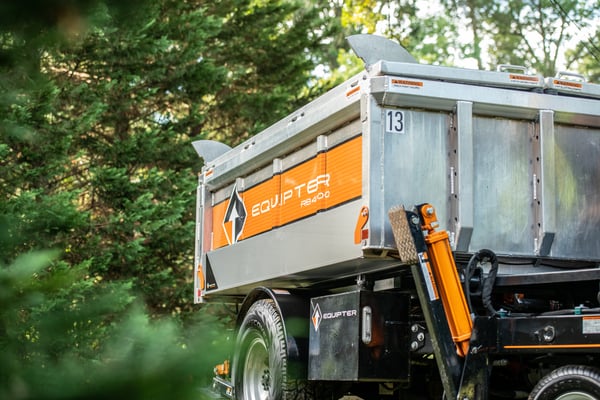
The Equipter RB4000 is a low-maintenance, innovative piece of equipment that serves contractors in roofing, general construction, and restoration across the US and in lower parts of Canada. Click the link below to find out how it can enhance how your equipment rental company does business.

Business plans for equipment rental companies are essential for attracting investors to get a kickstart on your next venture . Be sure to do your research to get a big picture view of how to create a plan unique to your vision.

Equipment Rental Business Plan PDF Example
- February 28, 2024
- Business Plan

Creating a comprehensive business plan is crucial for launching and running a successful equipment rental business. This plan serves as your roadmap, detailing your vision, operational strategies, and financial plan. It helps establish your equipment rental business’s identity, navigate the competitive market, and secure funding for growth.
This article not only breaks down the critical components of an equipment rental business plan, but also provides an example of a business plan to help you craft your own.
Whether you’re an experienced entrepreneur or new to the service industry, this guide, complete with a business plan example, lays the groundwork for turning your equipment rental business concept into reality. Let’s dive in!
Our equipment rental business plan is structured to encompass all critical components necessary for a detailed strategic approach. It outlines the operations of our rental service, our marketing strategies , the market environment, competitive analysis , our management team, and financial projections.
- Executive Summary : Offers an overview of your equipment rental business’s concept, market analysis , management, and financial strategy.
- Company & Location: Describes the business’s operational setup, storage facilities, and why its location benefits the target market .
- Equipment & Pricing: Lists the types of equipment available for rent, including pricing structure and any special rental terms.
- Key Stats: Shares industry size , growth trends, and relevant statistics for the equipment rental market.
- Key Trends: Highlights recent trends affecting the equipment rental sector, such as technological advancements or shifts in consumer behavior.
- Key Competitors: Analyzes main competitors in your area and how your business offers a competitive edge.
- SWOT: Conducts a Strengths, Weaknesses, Opportunities, and Threats analysis tailored to the equipment rental industry.
- Marketing Plan : Develops strategies for promoting your equipment rental services and building a loyal customer base.
- Timeline : Establishes key milestones and objectives from the initial setup through the first year of operation and beyond.
- Management: Information on who manages the Equipment Rental business, detailing their roles, experience, and qualifications in the industry.
- Financial Plan: Projects the business’s 5-year financial performance, including revenue from different types of equipment rentals, operational expenses, and profitability estimates.

Equipment Rental Business Plan

Fully editable 30+ slides Powerpoint presentation business plan template.
Download an expert-built 30+ slides Powerpoint business plan template
Executive Summary
The executive summary for your equipment rental business plan provides a succinct overview of your company, detailing the types of equipment available for rent, its market positioning, and the specific needs it addresses within the industry. It should outline the variety of equipment offered, the business’s location, size, and a snapshot of daily operations.
This section will also delve into how your equipment rental business will carve out its niche in the local market, including an analysis of direct competitors in the vicinity, identifying who they are, and highlighting your business’s unique selling propositions that set it apart from these competitors.
Moreover, it’s essential to include information about the management and co-founding team, elaborating on their roles and how their expertise and experience contribute to the business’s success.
A summary of your financial projections, including expected revenue and profit margins over the next five years, should also be included to provide a comprehensive view of your business’s financial outlook.
Make sure to cover here _ Business Overview _ Market Overview _ Management Team _ Financial Plan

Dive deeper into Executive Summary
Business Overview
For an equipment rental business, the Business Overview section can be effectively divided into 2 main segments:
Company & Location
For example: Our equipment rental facility boasts a streamlined, customer-friendly environment, designed to make equipment selection and rental a breeze. Conveniently situated with easy access to major business districts and event locations, our site offers ample parking and is near key transport routes, making it an ideal choice for a wide range of customer needs.
Equipment & Pricing
For example: We offer an extensive array of rental equipment, from heavy-duty construction machinery to essential event gear, all maintained to the highest standards for reliability and performance. Our pricing is competitive and reflects the premium quality of our equipment and service, with flexible rental terms to suit various project timelines. Special incentives, such as loyalty discounts and tailored package deals, are available to enhance value and foster long-term customer relationships.
Make sure to cover here _ Company & Location _ Equipment & Pricing

Market Overview
Industry size & growth.
In the market overview for your equipment rental business plan, begin by analyzing the size of the equipment rental industry and its potential for growth. This examination is vital for grasping the market’s breadth and pinpointing avenues for expansion.
Key Market Trends
Next, delve into the prevailing market trends , such as the growing demand for specialized equipment rental in sectors like construction, events, and film production.
Highlight the shift towards flexible rental solutions that accommodate project-based needs and the increasing preference for renting over purchasing expensive equipment to reduce capital expenditure. For instance, underline the surge in demand for the latest technology and environmentally friendly equipment options.
Key Competitors
Lastly, assess the competitive landscape, which spans from large national chains to local, specialized rental businesses, and even peer-to-peer rental platforms. Focus on what sets your business apart, whether it’s through superior customer support, a wide range of available equipment, or niche offerings tailored to specific industry needs.
Make sure to cover here _ Industry size & growth _ Key competitors _ Key market trends

Dive deeper into Key competitors
First, perform a SWOT analysis for the equipment rental business, emphasizing Strengths (such as a comprehensive inventory and superior customer service), Weaknesses (like significant upfront investment and market competition), Opportunities (for instance, the increasing preference for renting over buying equipment), and Threats (such as economic shifts that could reduce demand for rental services).
Marketing Plan
Next, devise a marketing plan that delineates strategies to attract and retain customers through targeted advertising, competitive pricing, an engaging online presence, and active participation in industry-related events.
Finally, draft a detailed timeline that specifies key milestones for the equipment rental business’s launch, marketing initiatives, customer base expansion, and goals for scaling up, ensuring a strategic approach to growth and development.
Make sure to cover here _ SWOT _ Marketing Plan _ Timeline

Dive deeper into SWOT
Dive deeper into Marketing Plan
The Management section focuses on the equipment rental business’s management and their direct roles in daily operations and strategic direction. This part is crucial for understanding who is responsible for making key decisions and driving the equipment rental toward its financial and operational goals.
For your equipment rental business plan, list the core team members, their specific responsibilities, and how their expertise supports the business.

Financial Plan
The Financial Plan section is a comprehensive analysis of your financial projections for revenue, expenses, and profitability. It lays out your equipment rental’s approach to securing funding, managing cash flow, and achieving breakeven.
This section typically includes detailed forecasts for the first 5 years of operation, highlighting expected revenue, operating costs , and capital expenditures.
For your equipment rental business plan, provide a snapshot of your financial statement (profit and loss, balance sheet, cash flow statement), as well as your key assumptions (e.g. number of customers and prices, expenses, etc.).
Make sure to cover here _ Profit and Loss _ Cash Flow Statement _ Balance Sheet _ Use of Funds

Related Posts

Carpet and Upholstery Cleaning Business Plan PDF Example
- June 17, 2024

Taxi Business Plan PDF Example

Self Storage Business Plan PDF Example
Privacy overview.
| Cookie | Duration | Description |
|---|---|---|
| BIGipServerwww_ou_edu_cms_servers | session | This cookie is associated with a computer network load balancer by the website host to ensure requests are routed to the correct endpoint and required sessions are managed. |
| cookielawinfo-checkbox-advertisement | 1 year | Set by the GDPR Cookie Consent plugin, this cookie is used to record the user consent for the cookies in the "Advertisement" category . |
| cookielawinfo-checkbox-analytics | 11 months | This cookie is set by GDPR Cookie Consent plugin. The cookie is used to store the user consent for the cookies in the category "Analytics". |
| cookielawinfo-checkbox-functional | 11 months | The cookie is set by GDPR cookie consent to record the user consent for the cookies in the category "Functional". |
| cookielawinfo-checkbox-necessary | 11 months | This cookie is set by GDPR Cookie Consent plugin. The cookies is used to store the user consent for the cookies in the category "Necessary". |
| cookielawinfo-checkbox-others | 11 months | This cookie is set by GDPR Cookie Consent plugin. The cookie is used to store the user consent for the cookies in the category "Other. |
| cookielawinfo-checkbox-performance | 11 months | This cookie is set by GDPR Cookie Consent plugin. The cookie is used to store the user consent for the cookies in the category "Performance". |
| CookieLawInfoConsent | 1 year | Records the default button state of the corresponding category & the status of CCPA. It works only in coordination with the primary cookie. |
| elementor | never | This cookie is used by the website's WordPress theme. It allows the website owner to implement or change the website's content in real-time. |
| viewed_cookie_policy | 11 months | The cookie is set by the GDPR Cookie Consent plugin and is used to store whether or not user has consented to the use of cookies. It does not store any personal data. |
| Cookie | Duration | Description |
|---|---|---|
| __cf_bm | 30 minutes | This cookie, set by Cloudflare, is used to support Cloudflare Bot Management. |
| language | session | This cookie is used to store the language preference of the user. |
| Cookie | Duration | Description |
|---|---|---|
| _ga | 2 years | The _ga cookie, installed by Google Analytics, calculates visitor, session and campaign data and also keeps track of site usage for the site's analytics report. The cookie stores information anonymously and assigns a randomly generated number to recognize unique visitors. |
| _ga_QP2X5FY328 | 2 years | This cookie is installed by Google Analytics. |
| _gat_UA-189374473-1 | 1 minute | A variation of the _gat cookie set by Google Analytics and Google Tag Manager to allow website owners to track visitor behaviour and measure site performance. The pattern element in the name contains the unique identity number of the account or website it relates to. |
| _gid | 1 day | Installed by Google Analytics, _gid cookie stores information on how visitors use a website, while also creating an analytics report of the website's performance. Some of the data that are collected include the number of visitors, their source, and the pages they visit anonymously. |
| browser_id | 5 years | This cookie is used for identifying the visitor browser on re-visit to the website. |
| WMF-Last-Access | 1 month 18 hours 11 minutes | This cookie is used to calculate unique devices accessing the website. |

How to Start an Equipment Rental Business: A Step-by-Step Guide

This article is your go-to guide for starting an equipment rental business , offering a step-by-step approach to navigate this venture. We packed our own insights after working with various rental businesses and helped them scale their operations.
We’ll go over on identifying the most profitable business idea, understanding your target market, and finding potential customers.
Moreover, it delves into selecting the right equipment, estimating your startup costs, and crafting a solid business plan.
Each section is tailored to provide you with the necessary tools and knowledge to set up a successful rental business, making it an invaluable resource for aspiring entrepreneurs in the rental industry.
6 Steps to Start a Rental Equipment Business in 2024
Starting a rental equipment business in 2024 requires a strategic approach and a deep understanding of the market. These six steps provide a comprehensive roadmap, from ideation to execution, ensuring you build a solid foundation for your entrepreneurial venture.
1. Identify Your Rental Business Idea
Pinpoint a niche in the rental market that aligns with both regional demands and your expertise. For example, if you're in a region with a robust fishing community, consider specializing in fishing kayaks and related equipment.
- Survey Local Residents: Conduct surveys within your community to gather direct feedback about what types of rental equipment are in demand. This can reveal insights into specific preferences, such as the popularity of tandem kayaks among couples or stand-up paddleboards for solo adventurers.
- Analyze Online Behavior: Utilize tools like Google Analytics to understand the interests of people visiting your website or searching for related activities in your area. For instance, a high number of searches for “mountain biking trails near me” could indicate a demand for mountain bikes.
- Study Competitors: Examine what your competitors are offering and to whom. If you notice a gap in the market - say, no one is catering to families with children - you can capitalize on this by offering child-friendly equipment like small kayaks or bikes with child seats.
2. Identify Your Target Market
Analyze demographic data and local trends to identify your ideal customer profile.
In-depth demographic analysis is integral to identifying your ideal customer profile for your equipment rental business.
Begin by examining local census data, focusing on age, income levels, and lifestyle preferences.
For instance, if your location boasts a significant population of young professionals with disposable income, gear your inventory towards adventure-centric equipment such as high-performance mountain bikes and jet skis.
To fine-tune your understanding, conduct surveys or focus groups with local residents. This hands-on approach can provide insights into specific equipment preferences, like the growing interest in electric bikes among eco-conscious consumers.
Additionally, attending local events or community gatherings can offer a direct view of the recreational interests prevalent in your area, guiding you to stock the most sought-after equipment.
3. Find Potential Customers
Start by analyzing online behavior using tools like Google Analytics and social media insights. This data can reveal where your target market spends their time online , what content resonates with them, and the best times to reach them.
Craft targeted advertising campaigns on platforms where your potential customers are most active.
For example, if data shows a high engagement rate on Instagram among your target demographic, focus on visually compelling content showcasing your inventory, like showcasing kayaks in scenic locations or highlighting the thrill of using your jet skis.
Partnering with local adventure clubs, tourism boards, and outdoor event organizers can also provide direct access to your target market.
These partnerships can be mutually beneficial; offering exclusive rental discounts to club members or event participants can drive business your way, while the clubs and events get to offer additional value to their members and attendees.
Implementing these focused tactics will help you efficiently reach and engage with potential customers, increasing the visibility and appeal of your equipment rental business.
4. Determine the Types of Equipment to Rent
When selecting equipment for your rental business, market research is pivotal. Assess the specific demands within your target market – for instance, if you're situated near urban areas with eco-aware consumers, consider adding solar-powered electric boats to your inventory.
This not only caters to environmental concerns but also differentiates your business in the competitive market.
Additionally, evaluate the popularity of various equipment types. Utilize tools like social media analytics to gauge interest in different outdoor activities, which can inform decisions about stocking stand-up paddleboards versus kayaks, for instance. This approach ensures your equipment rental business remains responsive to evolving consumer preferences.
Choosing the right equipment is just the beginning. For entrepreneurs eager to dive deeper into maximizing the profitability of your equipment rental business , it's vital to explore strategies that enhance your return on investment, from pricing models to customer retention techniques.
5. Estimate Startup Costs
A comprehensive financial plan is crucial for your equipment rental business. Begin by itemizing initial expenses such as the purchase of inventory – kayaks, jet skis, mountain bikes, and any specialized equipment like adaptive gear for individuals with disabilities.
Consider the costs of specialized transport vehicles for larger items like boats or jet skis. Include expenses for obtaining necessary permits and licenses, which may vary depending on your location and the type of equipment you're renting.
Also, factor in insurance costs to protect your business and inventory.
Lastly, allocate funds for marketing efforts to effectively launch and promote your business.
This detailed financial planning will help you secure funding, whether through loans, investors, or personal capital, and will guide your business towards profitability.
6. Create a Business Plan for Your Equipment Rental Company
Developing a business plan is a critical step for your equipment rental company. Start by integrating comprehensive market research to identify your target customers, their preferences, and spending habits. This research should guide your decisions on which types of equipment to stock, such as kayaks, bikes, or jet skis, and the quantity of each.
Include a competitive analysis to understand your market position relative to other rental businesses. Identify your unique selling points, whether it's superior equipment quality, specialized offerings like electric boats, or exceptional customer service.
Your financial strategy should detail all startup and operational costs, including the purchase of equipment, maintenance expenses, insurance, and marketing.
An integral part of your business plan revolves around strategizing your equipment rental pricing . Setting competitive yet profitable pricing is essential for attracting customers while ensuring your business's financial health, particularly in balancing peak and off-peak season demands.
Project your revenue streams, considering factors like seasonal demand variations for different types of equipment.
For example, demand for jet skis may peak in summer, while bikes might be more popular in spring and fall.
Tips to Start an Equipment Rental Business
Starting an equipment rental business requires strategic planning and savvy decision-making. The following tips are designed to guide you through key aspects of setting up and managing your rental business, ensuring both efficiency and profitability.
- Find the Best Deal for Your Equipment: Negotiate with suppliers for bulk pricing or seasonal discounts. Attend trade shows to connect with manufacturers offering innovative equipment that could give you an edge, like ultra-lightweight kayaks or advanced safety features in jet skis.
- Stock Up on the Best Inventory Available: Curate your inventory based on quality and unique selling points. For instance, offer high-end racing bikes with the latest gear systems for cycling enthusiasts.
- Don't Buy More, Buy Smarter: Invest in modular equipment that can serve multiple purposes. For example, kayaks with removable seats can be used for both solo and tandem experiences.
- Treat Your Equipment Right: Implement a rigorous maintenance protocol. Use the latest tools and technology for equipment diagnostics and repairs, ensuring each item is in peak condition for every rental.
- Stake Your Claim Online: Develop a sophisticated online presence with an emphasis on SEO and user experience. Showcase high-quality images and videos of your equipment in action, and feature customer testimonials highlighting unique experiences.
- Create Partnerships: Form strategic partnerships beyond the usual tourism circles. Consider collaborations with corporate entities for team-building retreats, offering group packages for your rental equipment.
- Find the Right Tools for Your Business: Utilize advanced rental management software that offers features like predictive analytics for inventory management, POS systems, and integrated customer relationship management tools.
- Decide on Your Online Booking Software: Select a booking system that offers flexibility and customization, like adjustable rental periods or add-on services. Ensure it has robust analytics to track customer behavior and preferences.
- Treat Your Customers Right: Implement a customer feedback system to continually improve your services. Offer loyalty programs or personalized rental suggestions based on previous preferences.
- Create a Waterproof Agreement: Design rental agreements that are comprehensive yet easy to understand. Include clauses specific to your equipment types, like damage protocols for high-tech gear or specific usage instructions for specialty bikes.
As you build your inventory, understanding the importance of digital inventory management becomes crucial. Effective inventory management not only streamlines operations but also ensures that your business can meet customer demand without overextending resources.
How to Calculate Your Startup Costs
Starting an equipment rental business, like renting out kayaks, boats, bikes, and jet skis, requires a clear understanding of the initial investment needed.
According to ProjectionHub's analysis of the equipment rental industry, the average annual revenue for all sole proprietorship equipment rental businesses in the U.S. was $168,007, with average annual expenses being $182,243, leading to an average net profit margin of -8%. *
Here's a breakdown of the startup costs you should consider, infused with expertise and actionable insights for rental business owners.
Equipment Rental Financial Model
These figures underline the importance of detailed financial projections and understanding the potential for net loss, especially due to large depreciation expenses which are a significant factor in the equipment rental business
Commercial and Industrial Equipment Rental Market: The Commercial and Industrial Equipment Rental industry report by Kentley Insights offers comprehensive data on industry size, growth, company dynamics, profitability, and financial benchmarks.
For instance, in 2023, the industry's sales were $47.3 billion, with an average sales per company of $9.5 million. The industry has experienced an annual growth rate of 7.3% over the past five years. Such reports can provide valuable insights for strategic planning and understanding the market dynamics of the equipment rental sector. *
Secure Necessary Financing: Calculate the total startup cost and plan your finance strategy. This could include loans, investors, or personal savings. Loan origination fees typically range from 0.5% to 1% of the loan amount.
Warehouse & Office (Deposit)
When leasing a warehouse or office space for a rental equipment business, costs vary based on location, size, and amenities. Prologis suggests the average base rental rate is around $0.85 per square foot per month, with an additional $0.25 per square foot per month for operating expenses, totaling an asking lease rate of $1.10 per square foot per month. *
Thomasnet * indicates that warehouse leasing costs depend on several factors, including the demand for smaller spaces in urban areas, which can drive up rental rates.
For a 1,000 square foot space, monthly costs could be approximately $1,100 or $13,200 annually, excluding the deposit. Thus, a deposit equivalent to the first and last month's rent could place your estimated total for warehouse and office space within the $10,000 - $20,000 range, aligning with your initial estimate. It's crucial to engage with landlords for a detailed understanding of all potential costs.
Renovation and Design Costs
For basic renovations and design of a rental business space like one for kayaks, boats, bikes, and jet skis, the budget range can vary widely based on several factors such as the quality of materials, labor costs, the extent of renovations, and the specific requirements of your business.
For example, electrical work alone can range significantly depending on the complexity of your needs, from as low as $10,000 to as high as $100,000 * for more extensive requirements.
Plumbing updates, particularly if adding or moving a bathroom, could cost between $3,000 to $6,000 or more *, depending on proximity to water and sewage lines. Flooring and ceiling updates might cost around $2.76 and $1.81 per square foot, respectively, while HVAC system updates could average about $2.61 per square foot or around $13,000 for a 5,000-square-foot space.
Given these variables, it's critical to get a clear understanding of your specific renovation needs and negotiate wisely with your landlord regarding the TI allowance.
Additionally, consulting with professionals like architects, interior designers, and contractors can provide a clearer and more detailed cost estimate tailored to your specific business needs.
Equipment Rental Insurance Costs
Insurance-Informed Decision: Obtaining comprehensive insurance is crucial. This includes general liability, property insurance, and specific insurance for rental equipment. Average costs for small business insurance range from $400 - $1,000 annually per policy. Expect to spend around $1,200 - $3,000 for the necessary coverage. *
Office Equipment & Security
It's also important to consider the ongoing costs of office supplies, which can average between $77 to $92 per employee per month for small businesses. This includes consumables like paper, ink, and other stationery items.*
For desktop computers, you can expect to pay between $400 for a basic model with limited storage space to $3,500 for a top-of-the-line desktop with a large hard drive. If you prefer Apple models, prices may range from $1,500 to $3,500, depending on the features required. Laptops offer more flexibility and can range from $300 for basic models to $3,000 for high-speed models with large storage capacity, with Apple laptops priced between $1,000 and $2,500. Tablets, which provide another level of portability and functionality, can cost between $200 and $1,200. *
Equipment Rental Fleet Maintenance Costs
Regularly Maintain and Service Equipment: Allocate funds for the ongoing maintenance of your rental fleet. This includes repairs, parts replacement, and servicing.
Setting aside about 10% of the initial cost of your equipment annually for maintenance aligns with industry guidelines for fleet management. This approach ensures your fleet remains in good condition, thereby reducing repair costs and maintaining your company's reputation. *
If your initial equipment costs are $50,000, budget around $5,000 annually for maintenance.
Key Takeaways
- Starting an equipment rental business involves a strategic approach, requiring steps from market research to execution, including identifying a niche, analyzing the target market, finding customers, selecting equipment, estimating costs, and creating a business plan.
- Estimated startup costs for an equipment rental business range from $27,700 to $56,000, covering expenses like market research, warehouse deposits, renovations, insurance, office equipment, and fleet maintenance.
- Profitability in the equipment rental business depends on factors like equipment type, market demand, and efficient management, with capital requirements varying based on equipment, location, and scale, and specific licenses or permits needed depending on the business location and equipment type.
Frequently Asked Questions
Is running an equipment rental business profitable.
Yes, running an equipment rental business can be profitable. The profitability largely depends on factors such as the type of equipment rented, market demand, location, and effective management. By offering in-demand equipment, maintaining high utilization rates, and managing operational costs efficiently, rental businesses can achieve significant profits.
How Much Capital is Needed to Start an Equipment Rental Business?
The capital required to start an equipment rental business varies depending on the type and quantity of equipment, location, and scale of the operation. On average, initial investments can range from $20,000 to $100,000. This includes costs for purchasing equipment, securing a location, initial marketing, and operational expenses.
Do I Need Special Licenses or Permits?
Yes, you will likely need special licenses or permits to operate an equipment rental business. The specific requirements depend on your location and the type of equipment you plan to rent. Common requirements include a general business license, safety and operation permits for certain types of equipment, and potentially special zoning permits for your rental facility. It's essential to check with local and state authorities to ensure compliance with all regulatory requirements.
Read about Dylan's Tours and how they became one of the largest operators in San Francisco
https://www.projectionhub.com/post/9-equipment-rental-industry-financial-statistics
https://www.marketresearch.com/Kentley-Insights-v4035/Commercial-Industrial-Equipment-Rental-Research-36009581/
https://sweeten.com/commercial-renovations/commercial-guide-retail-renovation-budget/
https://rentman.io/blog/equipment-rental-insurance
https://www.officeinteriors.ca/office-technology/what-does-office-equipment-cost/
https://www.business.org/finance/cost-management/much-computer-cost/
https://www.rermag.com/news-analysis/headline-news/article/20951948/fleet-management-101-fundamentals-to-maximizing-roi
Table of contents
Recommended Posts
Sign up to our newsletter..
Lorem ipsum dolor sit amet, consectetur adipiscing.
Want to learn more about Peek Pro? See it in action during our live demo
See related posts


How to Start an ATV Rental Business in 2024: Complete Guide

Top Recreational Equipment Rental KPIs and Metrics to Track

How to Start a Party Rental Business in 10 Steps
- Repair and Workshop Software
- Rental Software
- REPAIR SHOPS:
- PC & Mobile
- Motorcycles
- RENTAL SHOPS:
- Dumpsters/Skips
- RVs and Caravans
- Other Shops
- Integrations
Book a demo
How to Start an Equipment Rental Business: A Step-by-Step Guide

If you have been wondering how to start an equipment rental business, then you’ve come to the right place. Launching a rental business is a promising and exciting venture, but where do you start? Navigating the path from concept to success demands passion, dedication and strategic decision-making.
In this blog, we aim to simplify this journey and offer insights, and guidance on starting your equipment rental business to ensure its success. From mobility equipment rental to ski rental equipment, the rental market is ready for you to capitalise on its potential.
Table of Contents
What is an equipment rental business, step 1: identify your target market, step 2: research your competitors, step 3: land on your niche, step 4: assess your pricing, step 5: naming and branding your business, step 6: business registration, tax and local laws, step 7: website creation and seo, step 8: waivers and rental contracts, step 9: select a pos system, step 10: choose an equipment rental software, rental software with hubtiger.
An equipment rental business operates by providing customers with access to a wide range of items in exchange for a fee. Customers can select the rental duration, typically ranging from hourly, daily, weekly and even monthly terms, and are expected to return the rented items upon completion of the agreed-upon period.
This rental model offers customers the flexibility to engage in various activities without the burden of investing in costly equipment that would require long-term storage. By opting to rent, individuals can easily explore new pursuits by accessing premium items at a fraction of their retail cost, returning them once they have fulfilled their needs.
How to Start a Rental Business: 10 Actionable Steps for Success
Figuring out how to start an equipment rental business is no small task and requires careful planning and strategic decision-making. Despite this challenge, it can be an exciting adventure filled with opportunities for growth and success. Here are 10 actionable steps, complete with examples, to guide you through the process:
The first step in your quest to discover how to start an equipment rental business is to understand your target market . Start by conducting thorough research to uncover the interests and preferences of potential customers in your area.
Utilise tools like Google Trends to analyse market trends and figure out the best equipment to rent out. The best rental business ideas will depend on many things, including demographics, interests, and seasonal demand patterns to tailor your rental offerings.
Imagine you are planning to start a construction equipment business for small contractors. Your research shows a trend: independent contractors want flexible, high-quality equipment rentals.

So, you decide to provide customisable rental packages and on-demand delivery, meeting the unique needs of this market. This strategy aligns your business with your target audience’s demands, setting you up for success.
Competitor analysis is an integral part of developing a successful rental business strategy. Identify existing players in the market and assess their strengths, weaknesses, and market positioning. By understanding your competitors’ strategies, you can identify gaps in the market and differentiate your offerings to stand out.
Additionally, anticipate potential threats and challenges, especially from well-established competitors, and develop strategies to overcome them.
Imagine you’re conducting a competitor analysis in your area for your upcoming electric scooter rental business, and you come across Lime , a major player dominating the market with a significant presence and brand recognition.
Because Lime scooters have built a strong customer base and foothold, a new entrant facing this industry giant head-on may encounter significant challenges. Lime’s extensive resources, brand loyalty, and widespread availability can make competing directly with them daunting.
While trying to figure out how to start an equipment rental business you may come across the word niche. But what is a niche? A market niche embodies an unfulfilled requirement or neglected sector, offering a lucrative opportunity for businesses to meet particular demands or preferences.
Finding your niche is key to carving out a unique identity in the equipment rental industry. Consider your passions, expertise, and lifestyle preferences to identify a niche that aligns with your interests and resonates with your target audience. Focusing on a specific niche allows you to tailor your offerings and build a loyal customer base.
Example: Suppose you’re deeply committed to sourcing materials ethically to uplift local communities, and you’re interested in renting out marquees for weddings or events. In this case, your niche would revolve around sustainable and eco-friendly event equipment rentals, aligning with the values of environmentally-conscious customers who prioritise social responsibility and community support.
Setting competitive and fair pricing is essential for attracting customers and maximising profitability. Conduct market research to understand prevailing rental rates in your industry and region.
Consider factors such as rental duration, equipment quality, and value-added services when determining your pricing strategy. Aim to strike a balance between affordability for customers and profitability for your business.
To choose your pricing for renting camping equipment, consider the cost of purchasing and maintaining the equipment, the average rental rates in your area, and your target market’s budget. For instance, if a tent costs $200 and you expect it to last for 100 rentals, add maintenance and storage costs to determine your break-even point.

Then, compare with local rental rates and adjust for competitive pricing. If local rates are around $20 per rental, you might price similarly or slightly lower to attract customers, while ensuring your expenses are covered and you achieve a reasonable profit margin.
On your journey to discover how to start an equipment rental business, one of the critical elements to focus on is branding. While it might seem straightforward, effective branding can significantly impact the success or failure of your business.
First, you will need to name your business and consider purchasing a domain. Naming your business is not just about picking a title; it’s about creating an identity that resonates with your target audience and sets the tone for your entire brand experience.
You can use a free AI business naming tool to help generate ideas and some tools will even narrow the search to include available domains. It’s wise to select 3 or 4 potential names for your business as this ensures you have options available if your preferred name is already registered.
After finalising and registering your name and domain, the next step is to develop your branding assets. This encompasses designing a logo, setting up social media profiles, and creating any additional marketing materials required.
When launching a trailer rental business, choosing a clear and straightforward name, such as ‘Terry’s Trailers’ or ‘Trailers 4 Rent’ is essential for clear communication with potential customers. Avoid complex or unclear names to prevent confusion, rather opt for a name that directly reflects your business’s services.
Now that you know how to start an equipment rental business and you’ve completed the above five steps, it’s time to register your business. Registering your equipment rental business with local authorities is essential for legitimacy, regulatory compliance, and tax purposes.
It is also essential to research the specific permits and licenses required in your state and municipality, covering aspects like equipment safety and zoning ordinances.
Gather the necessary documentation and submit your application, ensuring you’re prepared for any associated fees. Once registered, you’ll not only gain legal standing but also establish credibility with customers and fulfil tax obligations. This process sets a solid foundation for your business, ensuring smooth operations while providing peace of mind to both you and your clients.
When starting a rental business in the US, registering with state agencies is a crucial step. Depending on your location and business type, the specifics may differ, but generally, you’ll need to file paperwork with your state government and pay any applicable fees. Make sure to register your business entity with your state to meet legal requirements.
Once you’ve secured your domain you can create an eye-catching website for your equipment rental business. You can choose to build it yourself or hire experts, but ensure it acts as your digital shop window. Focus on making it user-friendly, showcasing your inventory, and encouraging action.
While researching how to start an equipment rental business online, you may come across something called SEO. Search Engine Optimisation (SEO) involves enhancing both the quality and quantity of website traffic directed to a webpage or website from search engines like Google or Bing.
You can boost your brand’s online visibility by using the right keywords, creating quality content tailored to your audience’s needs, and ensuring your site works well on mobile and has fast loading times. By optimising your site for search engines, you’ll increase organic traffic, attract more potential customers, and ultimately boost inquiries and bookings for your rental business.

Say you’d like to start a ski rental business, begin by creating a visually appealing website that serves as your digital storefront, showcasing your range of ski equipment and enticing visitors to explore your offerings.
To drive traffic and boost visibility, implement effective SEO strategies . Identify relevant keywords your customers are searching for such as “ski rentals” or “winter sports gear for rent” and then create engaging and informative content on that subject.
It’s essential to protect yourself and your business by using electronic waivers or contracts when renting out equipment. These documents outline the terms of rental, responsibility for damages, and liability protection in case of accidents. Make sure all customers sign the waiver before renting any equipment to avoid legal issues down the road.
It is recommended you consult a lawyer to draft proper waivers that cover your specific risks and liabilities. The lawyer should be well-versed in your industry and will also be able to provide valuable legal advice on how to start an equipment rental business in your chosen industry.
If you plan to rent bicycles in the United States of America, you will need to comply with local laws in that specific state and sometimes even the individual municipality.
The significance of this matter is underscored by reports from The National Highway Traffic Safety Administration, which state that in an average year, there are approximately 800 fatalities among bicycle riders.
Therefore, you should make it mandatory for your customers to rent a helmet along with their chosen bicycle to ensure you’re compliant with legislation.
A point-of-sale (POS) system is a crucial tool for managing your equipment rentals and tracking sales. Look for a POS system that can handle inventory management, invoicing, and customer data and integrates with your chosen rental software . With an efficient POS system in place, you’ll have accurate records of all transactions, making it easier to track your business’s financials and make informed decisions.
If you are looking to start an outdoor equipment rental business that rents out kayaks and stand-up paddle boards for example, choosing the right POS system is crucial. You’ll need one that efficiently handles reservations and returns. Integrating flexible payment options, such as credit cards and digital wallets, can streamline the checkout process.
Moreover, a POS system that tracks inventory levels and identifies popular items is invaluable, enabling data-driven decisions to meet your customers’ needs effectively.
The last step in this guide on how to start an equipment rental business is to choose a rental software solution . To streamline your rental business operations, invest in rental inventory software that helps you track equipment availability, generate reports, manage customer data, and more. When selecting this software, rental businesses should not compromise on these 11 features:
- Real-time Tracking and Daily Summaries
- Online Waivers
- Short-Term and Long-Term Rental Options
- Online Bookings and Payments
- Automated Customer Messages
- Security Deposits
- Point-of-Sale Integrations
- Fleet Maintenance Management
- Smart Reviews
- Multi-Location Management
- Affiliates Program

When starting a rental company, choosing a rental software equipped with these features, can elevate operations, enhance customer satisfaction, and pave the way for success from the get-go.
Example: Suppose you specialise in repairing surfboards and decide to offer rentals to customers while their boards are being repaired. In choosing rental software, it would be ideal to select a solution that integrates seamlessly with your workshop management software. This integration ensures all operations are centralised, streamlining processes and boosting efficiency significantly.
No matter what type of rental business you decide to start, Hubtiger has the ultimate solution for you. Our rental software features all 11 essential elements listed above and integrates seamlessly with popular POS and payment processing platforms.
If you operate a workshop and are considering expanding into rentals, Hubtiger offers repair and workshop management software that seamlessly integrates with our rental solution. Plus, by utilising both platforms, you can enjoy a 30% discount on the lower-priced monthly subscription.
If you would like to know more, book a demo to see our software in action or start a free 7-day trial . We hope you found this guide on how to start an equipment rental business helpful and if you have any questions, please feel free to reach out to us .
- Pingback: Start Your Construction Machine Rental Service
Comments are closed.
How to build a successful equipment rental business
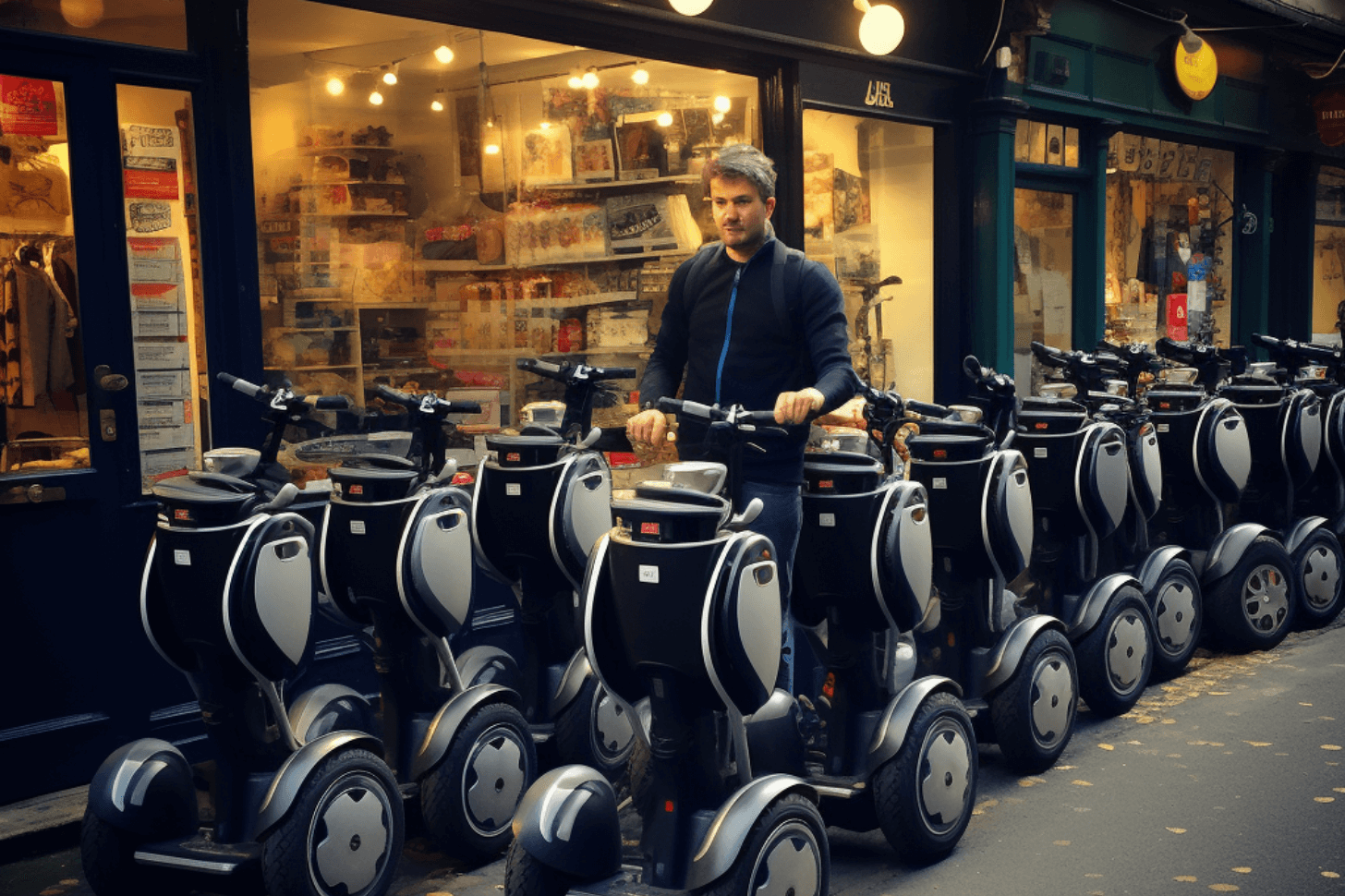
In this article:
Step 1: identify an untapped market or niche, step 2: build a strong inventory of high-quality equipment, step 3: develop a clear and competitive pricing structure, step 4: promote your company and establish a solid reputation, step 5: deliver superb customer service, step 6: practice sound financial management, step 7: set up an online booking system, step 8: addressing potential challenges.
An equipment rental company can be a rewarding venture, whether you are renting out construction equipment , sports equipment , staging furniture or any other form of equipment. There are several crucial steps that must be followed in order to build a successful equipment rental business. Each phase will be thoroughly discussed in this article, along with concrete examples to highlight each one's significance.
Building a profitable equipment leasing business requires finding an undiscovered market or niche. This entails performing market research to spot market insufficiencies when there is a demand for particular equipment or rental services that is not being met at the moment. Analyzing the local rental market to determine where there might be a need for more equipment or services is one method for finding untapped markets.
By observing new patterns in the market, you might potentially spot undiscovered markets. For instance, you might concentrate on offering eco-friendly or energy-efficient equipment rentals to clients who value sustainability if you detect a rising demand for these types of equipment. Another strategy is to analyze what your rivals are providing and spot places where you can set your company apart by providing special tools or services that they do not.
It's crucial to take your target market's demographics into account. Offering recreational equipment like kayaks, paddleboards, or camping supplies, for instance, could be a lucrative niche if you live in a place with a lot of outdoor enthusiasts. In contrast, if you live in a region where there are many construction firms, specializing in the renting of heavy machinery like bulldozers, backhoes, and excavators might be a profitable business.
In the end, finding an untapped market or niche necessitates carefully taking into account variables including demand, competition, new trends, and demographic characteristics. You may find a lucrative niche that will enable you to stand out from the competition and draw in a following by undertaking in-depth market research and analysis.
The development of a substantial inventory of top-notch machinery is essential to the success of your rental company. Your clients depend on your equipment to function well, therefore it's critical to make investments in dependable equipment that is in top shape. Consider the particular requirements of your target market when selecting the equipment to add to your inventory, and make an effort to offer a variety of solutions that accommodate various preferences and financial constraints.
If you rent out construction equipment, for instance, you could wish to provide a selection of tools, from large bulldozers to little excavators. In order to stay competitive, it's also critical to follow market trends and make new equipment purchases when needed.
It's equally crucial to perform routine maintenance on your equipment to keep it in good operating order. Your machinery's lifespan can be increased and malfunctions prevented with routine checks, maintenance, and repairs. Having a plan in place for handling any problems or malfunctions that can occur during a rental period is also essential. You may rapidly address any difficulties and preserve client happiness by hiring a specialized maintenance crew or outsourcing to a reliable repair provider.
The next stage in starting a profitable equipment rental company is to create a transparent and aggressive pricing structure. This calls for careful consideration of your pricing strategy to ensure that it is both open and equitable. Setting fair prices for your equipment based on elements like the expense of acquisition, upkeep, and repair is one strategy.
You should conduct market research to find out how much other rental businesses are charging for comparable equipment in order to stay competitive. This will assist you in making sure that your charges are reasonable and do not price yourself out of the market.
Moreover, you ought to provide a selection of renting plans to accommodate various customer requirements. This can offer alternatives for renting on a daily, weekly, or monthly basis. You can appeal to a larger customer base and keep your firm competitive by offering flexible renting arrangements.
It's crucial to remember that pricing involves more than just deciding on prices; it also involves explaining to potential clients the value of your products and services. As a result, it's a good idea to have a transparent price structure that includes all the information clients require to make an informed choice and is simple to understand.
Promoting your company and building a strong reputation are the following steps in starting a profitable equipment rental company. There are a number of efficient strategies to promote your company and draw customers, including using social media, internet advertising, and local marketing activities. You may reach a larger audience and spread the word about your company by utilizing these channels.
Yet, to establish a solid reputation for your business, it's equally crucial to put a high priority on customer service and offer high-quality items. Offering extra services like delivery, setup, and pickup can help you do this by making the rental process more convenient for your clients. You may build a devoted customer base and foster favorable word-of-mouth recommendations by going above and beyond to satisfy their requirements and surpass their expectations.
Building connections with other companies in your field will also help you create reputation and trust. For instance, you may collaborate with regional contractors or event organizers to offer them your tools and services. Your network may grow as a result, and new business opportunities may arise.
You may build a solid reputation for your firm and distinguish yourself from rivals by promoting it and putting the needs of customers first.
To guarantee customer pleasure and build a solid reputation for your equipment rental firm, you must provide outstanding customer service. You must make sure that you and your employees are constantly ready to address any questions or concerns that your clients may have if you want to do this. Responding to calls, emails, and messages on social media is a part of this.
It's crucial to give correct information regarding your rental alternatives and machinery when speaking with your customers. This covers information on rental costs, delivery costs, pickup processes, and any equipment-specific limits or specifications. Establishing trust and a long-lasting business relationship with your clients can be facilitated by being open and honest with them.
Also, you need to confirm that your equipment will arrive on schedule and in good operating order. This entails carrying out routine inspections and repairs to guarantee that your equipment is constantly in good working order. To make the equipment rental procedure more convenient for your customers, you might also wish to offer other services like equipment setup, delivery, and pickup.
Finally, providing outstanding customer service includes following up after a rental is finished. You can find areas for improvement and address any issues your customers may have by asking for their opinion. You can consistently develop your company and make sure that your customers are happy with the services you offer by actively considering consumer feedback.
Any firm, including one that rents out equipment, must practice strong financial management to succeed. To get a clear view of your financial situation, start by keeping track of your expenses and income. This will help you find areas where you may reduce expenses or make adjustments to boost sales.
You should also budget money for maintenance and repairs on your equipment. Regular maintenance helps avoid malfunctions and pricey repairs because rental equipment is prone to wear and strain. You may increase the lifespan of your equipment and lower long-term costs by investing in preventative maintenance.
Budgeting for recurring costs like insurance, equipment upkeep, and transportation fees is also crucial. In the case of an accident or equipment damage, insurance can shield your company from unforeseen costs. Shipping expenses can mount up quickly, especially if you're shipping equipment outside of your typical service region or to remote areas.
Finally, it's critical to regularly assess your financial performance in order to pinpoint areas that may need improvement. This can aid in your decision-making on pricing, inventory control, and marketing tactics. You can ensure that your company is successful and long-lasting by keeping a tight check on your finances.
Your equipment rental business can gain a lot from setting up an online booking system . It enables your customers to conveniently reserve and pay for equipment online without having to come to your office or give you a phone call. This can expedite the renting process and save time for both you and your clients.
Make sure your online reservation system is simple to use and navigate while setting it up. Customers should be able to peruse your inventory, pick out the pieces of equipment they wish to rent, and select a rental duration that works for them. Also, you should confirm that the system can easily and securely process payments.
You may efficiently manage your equipment and bookings by using an online booking system. The system allows you to keep track of equipment availability, manage your inventory, and see upcoming bookings. This can assist you in making a plan and ensuring that you have sufficient equipment on hand to meet demand.
An online reservation system can also give you useful information and insights about your company. You can keep tabs on rental trends, examine your financial success, and keep track of consumer behavior. You can use this information to make data-driven decisions and pinpoint areas that need work.
Overall, implementing an online reservation system can help you automate your rental process, enhance customer satisfaction, and expand your clientele.
Building a successful equipment leasing company requires addressing possible problems. These are some typical difficulties and solutions for them:
- Equipment in short supply: If you run into equipment in short supply, think about renting it from another company or making an additional equipment purchase. Until the equipment is available, you can alternatively advise a waitlist to clients or give them substitute equipment.
- Equipment loss or damage: It's critical to have clear rules and procedures in place to address these circumstances in order to protect your company. Make careful to record the equipment's condition both before and after the rental term, and demand that clients sign a rental agreement outlining their obligations.
- Minimize late returns: Late returns can mess up your rental schedule and have an effect on subsequent rentals. Establish precise rules for rental durations and let your consumers know about them in advance. To encourage customers to return equipment on time, you can also institute a late return fee.
- Seasonal variations: The demand for your products or services may vary seasonally depending on your expertise. Prepare ahead and modify your inventory levels and marketing tactics as necessary. To draw clients during off-peak seasons, you might also think about broadening your product options.
- Economic downturns: Downturns in the economy might affect the demand for equipment that is rented. Have a solid financial position and diversify your clientele to reduce this danger. At sluggish times, you can also run specials or discounts to draw in new clients.
You can assure the long-term profitability of your equipment rental company by proactively addressing potential problems.
This article explains five crucial methods to help you stand out from the competition and draw in a devoted clientele. Start by conducting market research to identify market gaps in order to find an untapped market or niche. Then, put together a premium inventory that caters to the distinct requirements of your target market. Create a straightforward price system that is competitive and adaptable after that. With marketing and first-rate customer service, build a solid reputation and advertise your company. Last but not least, go above and above by offering superb customer service that includes quick replies, precise information, and extra services. Your rental business will be successful if you follow these five steps!
How can OskarOS help me?
So, first of all: You’ve come to the right place! We are building OskarOS into a very flexible, agile and simple to use software platform with appointment scheduling , online booking , and ressource reservation management at its core. We are a startup based in Germany, our founders have previously built other startups in the service and platform fields, so we know the hustle of managing day-to-day operations and what we are doing. When you use our product or speak to us, you will feel why you should be working with us. There will always be someone to talk and we will be working with you to find the best possible solution to your particular challenges. We are currently pre-launch, so the best you can do right now is to sign up for our early access program and join 200+ other small and medium sized businesses as the first users of our product. Our vision for OskarOS is to deliver enterprise-grade software at an affordable price!
Want to learn more? Check out also the following 5 blog articles:
- Using scheduling software, increase holiday rental income
- Implementing equipment rentals at universities: 7 Tips
- Hair Stylist App: Why It’s Time to Revolutionize Your Salon
- How to solve your scheduling headaches using legal appointment booking software
- Say goodbye to cancellations and no-shows: How scheduling apps can benefit your coaching business
So what are the various applications of our software?
OskarOS is a flexible platform that provides a variety of scheduling and booking software solutions for companies in many industries. OskarOS has you covered for anything from childcare scheduling software to tour operator software.
OskarOS offers small hotel booking software , furniture and stage rental software, and a camping reservation system for companies in the hospitality sector. A hotel reservation software is also available from OskarOS to assist businesses in managing their bookings and reservations.
OskarOS provides a booking calendar for fitness classes, booking software for yoga studios , appointment management for photo studios, and a patient scheduling system for organizations in the medical and wellness sector . Moreover, OskarOS offers dental practices, hair and nail salons online booking software for their services.
OskarOS offers appointment scheduling and booking systems for tutoring sessions , scheduling software for driving schools, and course scheduling and class booking software for companies in the education sector.
With its government scheduling software, OskarOS also serves enterprises in the public sector. Pet sitters can utilize its pet sitter booking software . Even booking software for art classes, event venues and sports facilities is available with OskarOS.
Businesses can streamline operations, enhance customer experience, and manage reservations and bookings effortlessly using OskarOS. Whatever your requirements are for scheduling or booking, OskarOS has a solution.

Ready for monster bookings? Get set in no time.
Education & Training
- Training scheduling software
- Coaching scheduling system
- Booking system for art classes
- Tutoring lessons appointment scheduler and booking system
- Driving school scheduling software
- University booking system
- Childcare booking software
- Course scheduling and class booking software
Beauty & Wellness
- Beauty bookings software
- Online booking system for eyelash extensions
- Booking system for hair salons
- Nail salons online booking software
- Barber shop software
- Spa and massage salon online booking software
Fitness & Sports
- Booking app for personal training
- Booking calendar for fitness classes
- Sports facilities booking system
- Gym Booking Software
- Sports equipment rental software
- Booking software for yoga studios
Workspace & Facilities Management
- Desk booking system
- Reservation management for office spaces
- Meeting room booking software
- Coworking Space Booking System
Hospitality & Leisure
- Campsite booking system
- Surf camp booking software
- Venue booking software
- Booking software for small hotel businesses
- Tour operator software
- Tour booking software
Business & Professional Services
- Machinery and tool rental software
- Furniture and staging rental software
- Consultant scheduling software
- Appointment management for photo studios
- Pet sitter booking software
- Financial services scheduling system
- Cleaning service scheduling software
Healthcare & Medical
- Chiropractors booking software
- Patient scheduling system
- Online booking software for dentists and dental clinics
- Healthcare scheduling software
- Online booking system for counseling services
- Medical scheduling software
Public Services
- Online booking system for councils and local authorities
- Government scheduling software
- Embassies and consulates scheduling software
We earn commissions if you shop through the links below. Read more
Equipment Rental Business
Back to All Business Ideas
How to Start a Profitable Heavy Equipment Rental Business
Written by: Carolyn Young
Carolyn Young is a business writer who focuses on entrepreneurial concepts and the business formation. She has over 25 years of experience in business roles, and has authored several entrepreneurship textbooks.
Edited by: David Lepeska
David has been writing and learning about business, finance and globalization for a quarter-century, starting with a small New York consulting firm in the 1990s.
Published on April 13, 2022 Updated on August 1, 2024
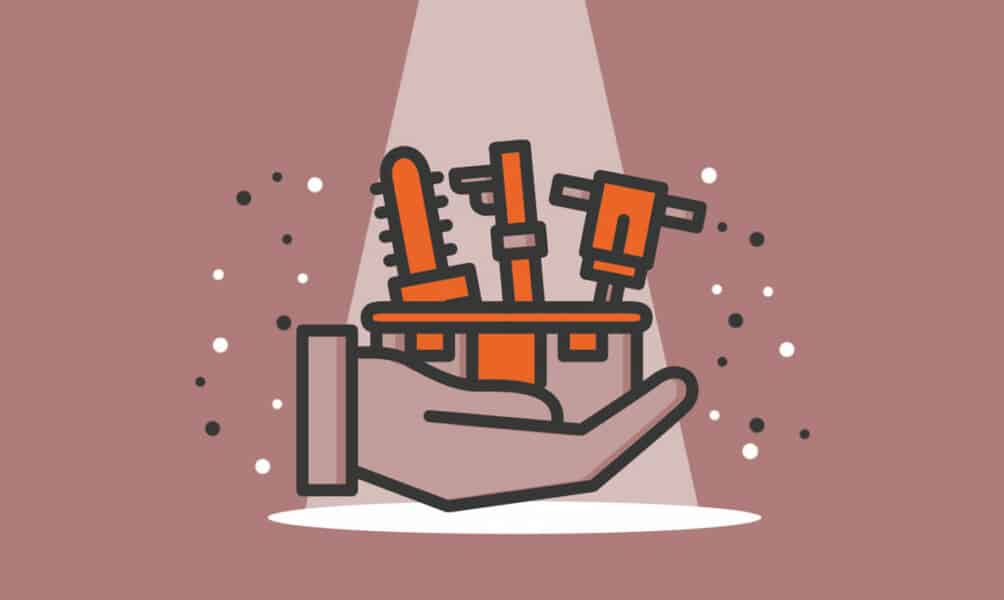
Investment range
$8,550 - $18,100
Revenue potential
$62,000 - $156,000 p.a.
Time to build
1 – 3 months
Profit potential
$50,000 - $125,000 p.a.
Industry trend
Important points to remember when setting up your equipment rental business:
- Market research — Identify your target market, understand their needs and preferences, and research competitors.
- Define your niche — Decide on the types of equipment you will rent, such as construction equipment, party supplies, tools, medical equipment, or audiovisual equipment.
- Special permits — Depending on the type of equipment you rent, you may need additional permits or certifications, such as safety certifications for construction equipment .
- Sourcing equipment — Purchase high-quality, durable equipment from reputable suppliers. Consider buying new or used equipment depending on your budget and the expected demand.
- Inventory management — Implement an inventory management system to track equipment availability, rental history, maintenance schedules, and reservations.
- Register your business — A limited liability company (LLC) is the best legal structure for new businesses because it is fast and simple. Form your business immediately using ZenBusiness LLC formation service or hire one of the best LLC services on the market.
- Legal business aspects — Register for taxes, open a business bank account, and get an EIN .
- Partnerships — Build relationships with local businesses, contractors, event planners, and suppliers to generate referrals and collaborate on projects.
You May Also Wonder:
Can an equipment rental business be profitable?
Yes, you can make good money from equipment rentals since your ongoing expenses will be low. The key is to purchase the equipment that people will be most likely to rent.
How do I handle maintenance and repairs for the rented equipment?
It is important to establish a maintenance schedule and set procedures for handling repairs, including regular inspections and preventative maintenance, as well as prompt response to customer complaints or concerns.
Can I start an equipment rental business on the side?
Yes, it is possible to start an equipment rental business on the side, although it may require significant time and effort to manage both the business and your other commitments. It is important to carefully consider your available time, resources, and expertise, as well as the potential demand for your services and the competition in the market.
Are there any special considerations or regulations for renting out heavy machinery or specialized equipment?
Renting out heavy machinery or specialized equipment may be subject to additional regulations and safety requirements, depending on the type of equipment and the industry in which it is used. It is important to research and comply with all relevant regulations and safety standards, and to ensure that your staff and customers are trained and educated on safe operation and handling of the equipment.
How to increase customer retention for my equipment rental business?
To increase customer retention for your equipment rental business, you can focus on providing exceptional customer service, including prompt response to inquiries and complaints, flexible rental terms, and personalized attention to each customer’s needs. You can also offer loyalty programs or incentives for repeat business, and regularly communicate with customers to stay top of mind and offer new promotions or deals.
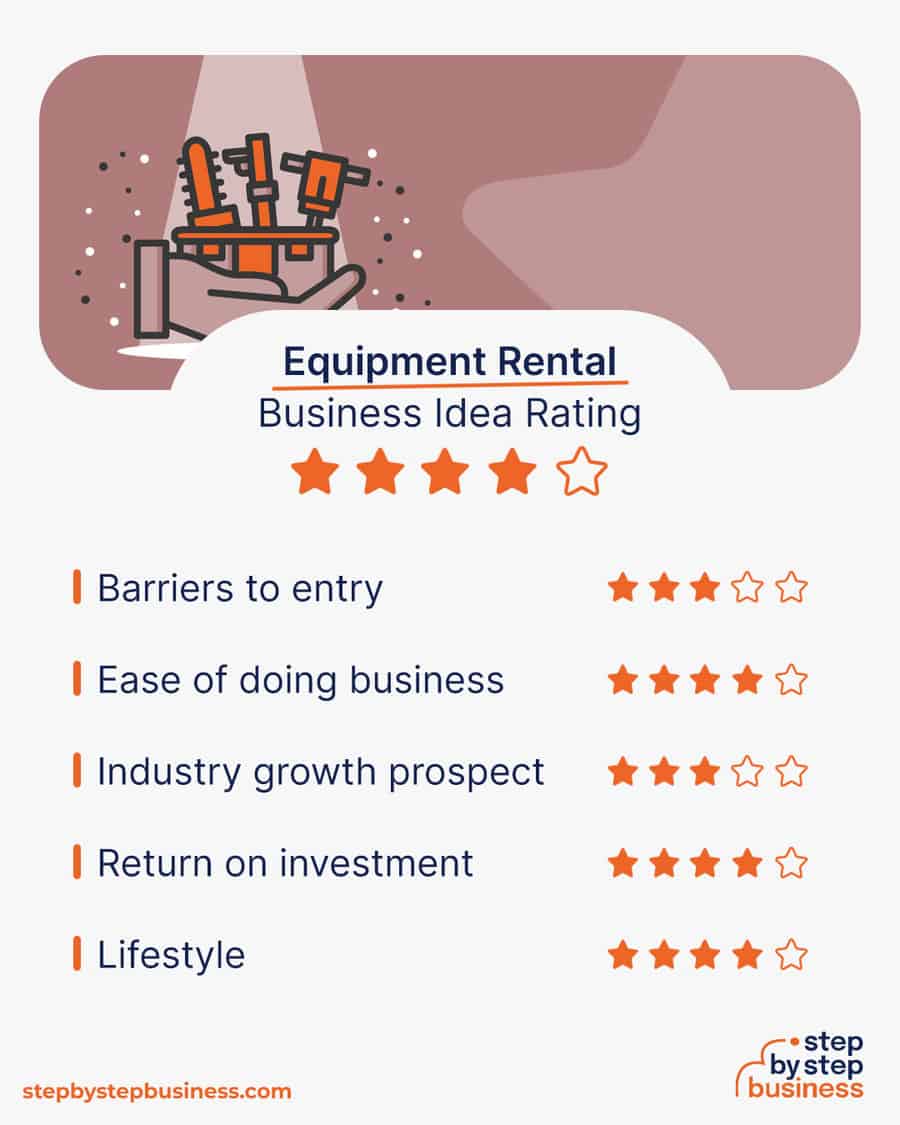
Step 1: Decide if the Business Is Right for You
Pros and cons.
Starting an equipment rental business has pros and cons to consider before deciding if it’s right for you.
- Good Money – Depending on the equipment, you can make hundreds a day
- Flexible – Run your business from home on your hours
- Minimal Labor – Pickups and drop-offs only
- Big Competition – Compete with companies like Home Depot
- Up Front Investment – Spend some money get started
Equipment rental industry trends
Industry size and growth.
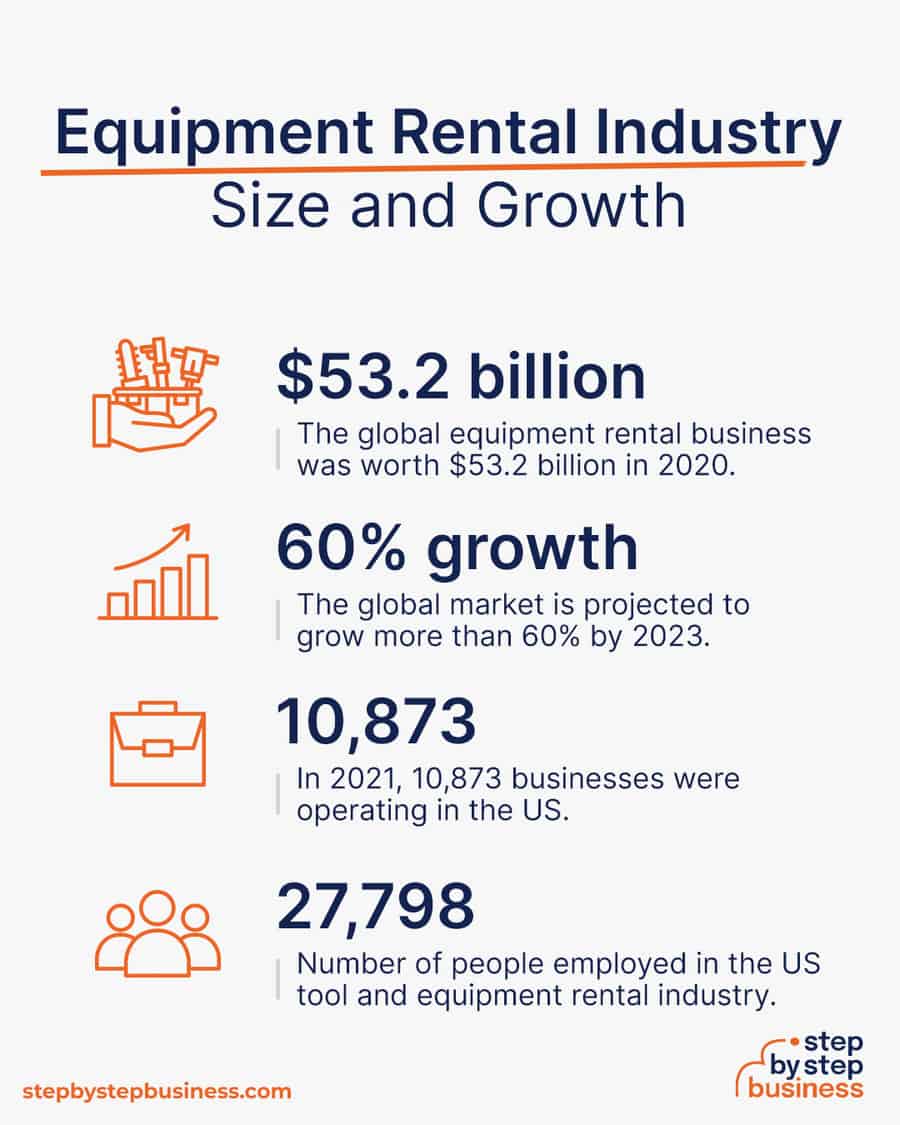
- Industry size and past growth – The global equipment rental business was worth $53.2 billion in 2020, after more than a 60% decline from 2019 numbers.(( https://www.statista.com/topics/8063/equipment-rental-market-in-the-united-states/?#dossierKeyfigures ))
- Growth forecast – The global equipment rental business is projected to grow more than 60% by 2023 to regain its 2019 total of more than $87 billion.
- Number of businesses – In 2021, 10,873 tool and equipment rental businesses were operating in the US.(( https://www.ibisworld.com/united-states/market-research-reports/tool-equipment-rental-industry/ ))
- Number of people employed – In 2021, the US tool and equipment rental business employed 27,798 people.
Trends and challenges
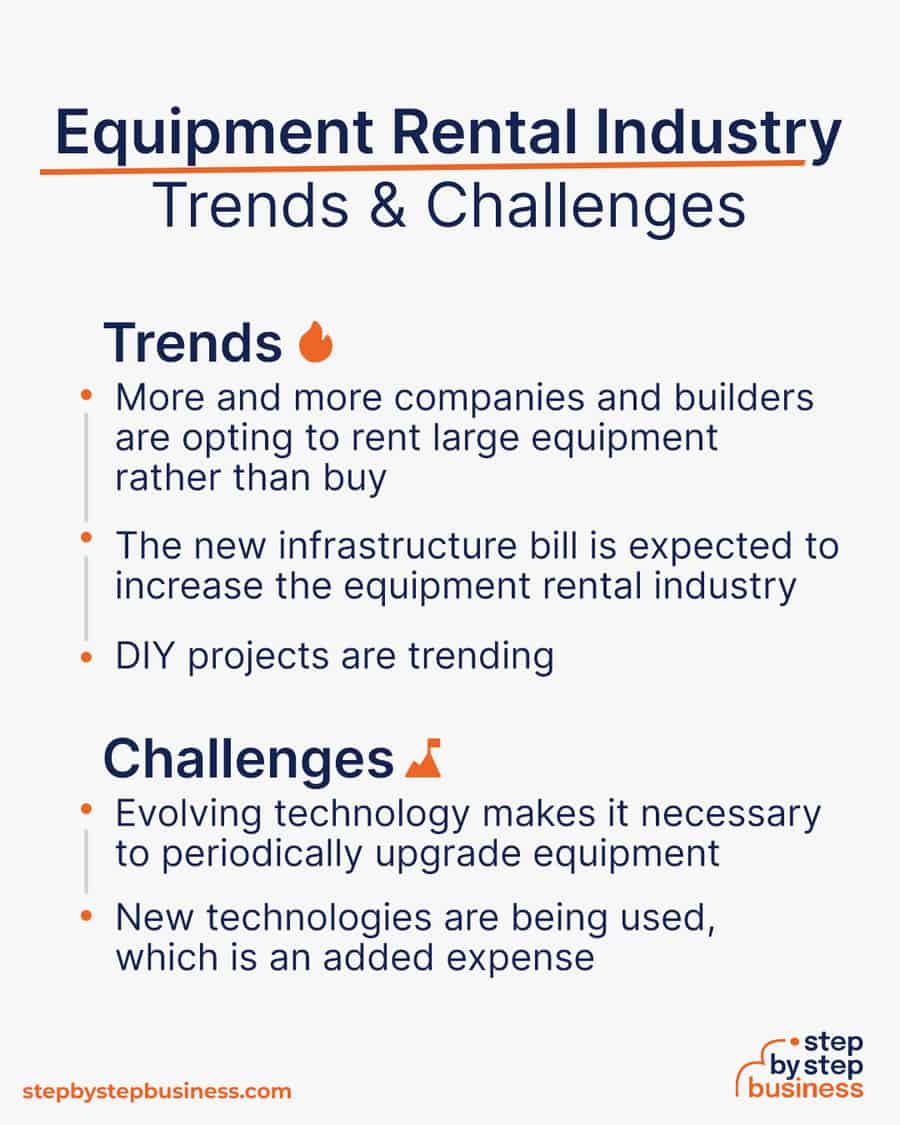
Trends in the equipment rental industry include:
- More and more construction companies and builders are opting to rent large equipment rather than buy, which is good news for the equipment rental industry.
- The new infrastructure bill, which is driving the construction industry, is also expected to increase the equipment rental industry.
- DIY projects are trending, with homeowners attempting to do remodeling and repairs on their own, and these people tend to rent rather than buy tools and equipment.
Challenges in the equipment rental industry include:
- Evolving technology makes it necessary for equipment rental companies to periodically upgrade their equipment.
- New technologies are being used to track equipment, which is solving a consistent problem in the equipment rental business but is an added expense for rental companies to assume.
How much does it cost to start an equipment rental business?
Startup costs for an equipment rental business range from $8,500 to $18,000, although the costs vary widely depending on the type of equipment. These calculations assume that you will start out with large tools such as chainsaws, tile saws, drills, power washers, and so on. Costs also include the down payment on a truck or van to transport your equipment.
Be sure to have an equipment rental agreement in place that customers must sign, and it should include a liability waiver in case someone is injured by the equipment. Also, make sure that your equipment is properly insured.
| Start-up Costs | Ballpark Range | Average |
|---|---|---|
| Setting up a business name and corporation | $150 - $200 | $175 |
| Business licenses and permits | $100 - $300 | $200 |
| Insurance | $100-$300 | $200 |
| Business cards and brochures | $200 - $300 | $250 |
| Website setup | $1,000 - $3,000 | $2,000 |
| 10 - 20 pieces of equipment | $5,000 - $10,000 | $7,500 |
| Software to track equipment | $500 - $1,000 | $750 |
| Down payment on a truck to transport equipment | $1,500 - $3,000 | $2,250 |
| Total | $8,550 - $18,100 | $13,325 |
How much can you earn from an equipment rental business?
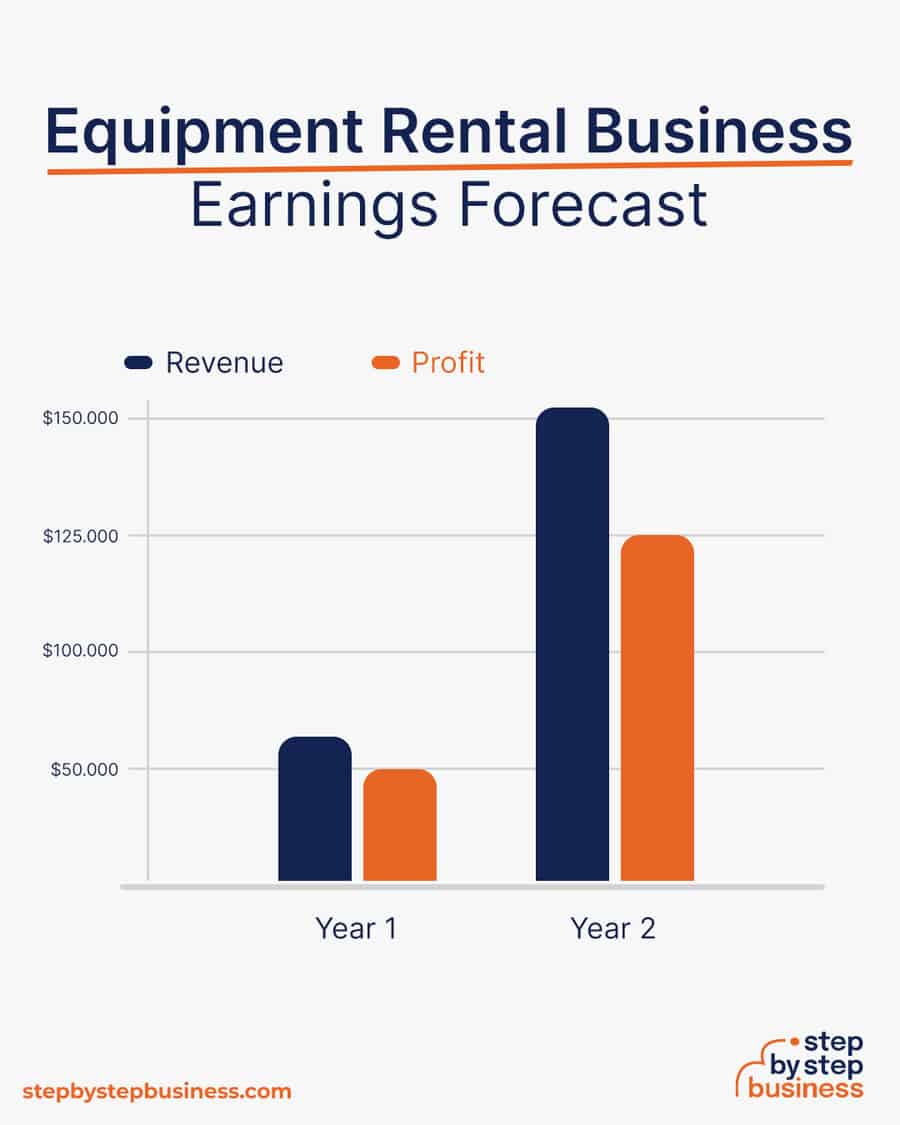
Daily rental rates for most smaller tools average about $40. Your profit margin should be about 80%.
In your first year or two, you might have 10 pieces of equipment and rent six of them five days per week, bringing in more than $62,000 in annual revenue. This would mean $50,000 in profit, assuming that 80% margin. As your business gains traction, you could add 10 more pieces of equipment and rent 15 of them five days a week. With annual revenue of $156,000, you’d make a healthy profit of $125,000.
What barriers to entry are there?
There are a few barriers to entry for an equipment rental business. Your biggest challenges will be:
- The startup costs to purchase equipment
- The space to store your equipment
Related Business Ideas
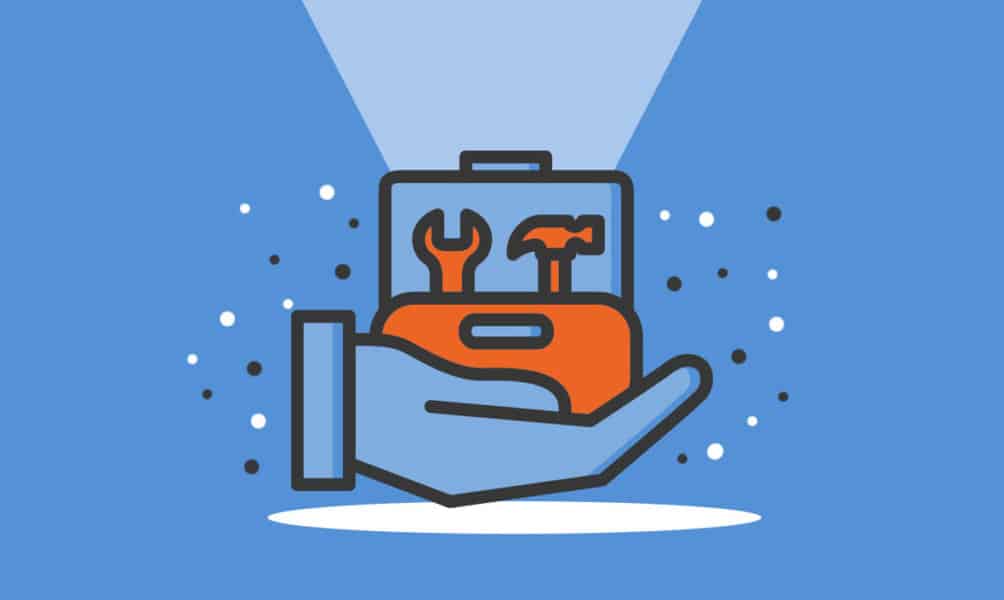
The Ultimate Guide to Starting a Tool Rental Business
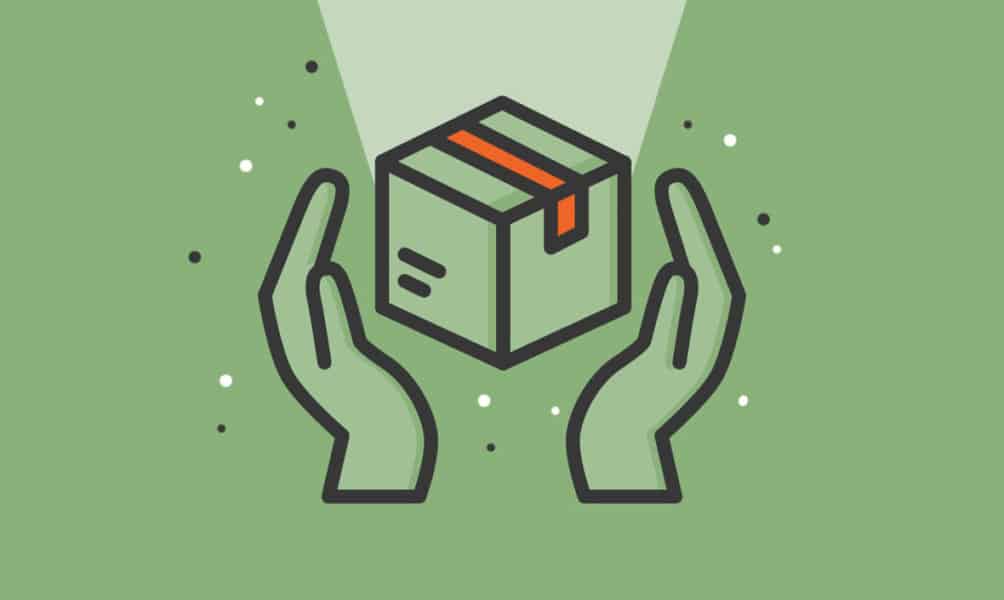
A Beginner’s Guide to Starting a Self Storage Business
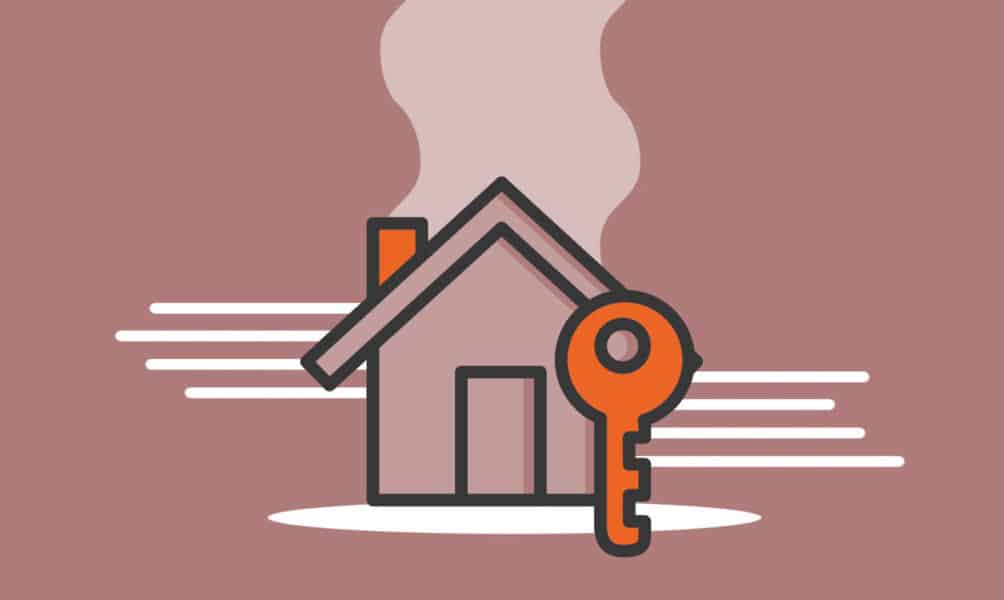
Investing in Rental Properties: Your Business Startup Guide
Step 2: hone your idea.
Now that you know what’s involved in starting an equipment rental business, it’s a good idea to hone your concept in preparation to enter a competitive market.
Market research will give you the upper hand, even if you’re already positive that you have a perfect product or service. Conducting market research is important, because it can help you understand your customers better, who your competitors are, and your business landscape.
Why? Identify an opportunity
Research equipment rental businesses in your area to examine their products, price points, and what rents best. You’re looking for a market gap to fill. For instance, maybe the local market is missing a business that rents wet tile saws, or party supplies and party equipment like bouncy houses and karaoke machines.
You might consider targeting a niche market by specializing in a certain aspect of your industry, such as construction equipment or larger tools for the do-it-yourself-er.
This could jumpstart your word-of-mouth marketing and attract clients right away.
What? Determine your rental equipment
You’ll just need to determine what equipment you want to rent. You should specialize in a certain type of equipment so that you can focus on a certain target market. You might want to call construction or remodeling companies to see what they are most likely to rent. Read how Lenny Tim innovated in the mobility scooter rental business and glean insights that could revolutionize your entrepreneurial approach.
How much should you charge for equipment rental?
Prices will vary based on the type of equipment that you rent. Check local market prices to make sure you’re competitive. You should aim for a profit margin of about 80%.
Once you know your costs, you can use this Step By Step profit margin calculator to determine your mark-up and final price points. Remember, the prices you use at launch should be subject to change if warranted by the market.
Who? Identify your target market
Your target market will either be construction-related companies or homeowners. You should spread out your marketing to include TikTok, Instagram, Facebook, and LinkedIn.
Where? Choose your business premises
In the early stages, you may want to run your business from home to keep costs low. But as your business grows, you’ll likely need to hire workers for various roles and may need to rent out a storage space for your equipment. You can find commercial space to rent in your area on sites such as Craigslist , Crexi , and Instant Offices .
When choosing a commercial space, you may want to follow these rules of thumb:
- Central location accessible via public transport
- Ventilated and spacious, with good natural light
- Flexible lease that can be extended as your business grows
- Ready-to-use space with no major renovations or repairs needed
Step 3: Brainstorm a Business Name
Here are some ideas for brainstorming your business name:
- Short, unique, and catchy names tend to stand out
- Names that are easy to say and spell tend to do better
- Name should be relevant to your product or service offerings
- Ask around — family, friends, colleagues, social media — for suggestions
- Including keywords, such as “equipment rental” or “tool rental”, boosts SEO
- Name should allow for expansion, for ex: “Premier Rental Solutions” over “Power Tools Rental Solutions”
- A location-based name can help establish a strong connection with your local community and help with the SEO but might hinder future expansion
Once you’ve got a list of potential names, visit the website of the US Patent and Trademark Office to make sure they are available for registration and check the availability of related domain names using our Domain Name Search tool. Using “.com” or “.org” sharply increases credibility, so it’s best to focus on these.
Find a Domain
Powered by GoDaddy.com
Finally, make your choice among the names that pass this screening and go ahead with domain registration and social media account creation. Your business name is one of the key differentiators that sets your business apart. Once you pick your company name, and start with the branding, it is hard to change the business name. Therefore, it’s important to carefully consider your choice before you start a business entity.
Step 4: Create a Business Plan
Here are the key components of a business plan:

- Executive Summary: Summarize your equipment rental business’s goal to provide a wide range of quality, well-maintained equipment for short-term or long-term rental to various industries.
- Business Overview: Describe your business’s focus on renting out equipment such as construction machinery, event gear, or audio-visual technology to meet diverse client needs.
- Product and Services: Detail the types of equipment available for rent, including categories like heavy machinery, landscaping tools, party supplies, or audio-visual equipment.
- Market Analysis: Assess the demand for rental equipment, considering target markets like construction companies, event planners, or DIY homeowners.
- Competitive Analysis: Compare your rental offerings to other equipment rental businesses, focusing on your strengths like equipment variety, maintenance quality, or flexible rental terms.
- Sales and Marketing: Outline your strategy for attracting customers, including digital marketing, building relationships with industry professionals, or offering competitive pricing.
- Management Team: Highlight the experience and qualifications of your team, especially in areas like equipment maintenance, customer service, and business management.
- Operations Plan: Describe the process of equipment rental, from inventory management and maintenance to customer service and delivery logistics.
- Financial Plan: Provide an overview of financial aspects, covering startup costs, pricing strategy, and expected revenue.
- Appendix: Include supplementary documents such as equipment catalogs, maintenance records, or market research data to support your business plan.
If you’ve never created a business plan, it can be an intimidating task. You might consider hiring a business plan specialist to create a top-notch business plan for you.
Step 5: Register Your Business
Registering your business is an absolutely crucial step — it’s the prerequisite to paying taxes, raising capital, opening a bank account, and other guideposts on the road to getting a business up and running.
Plus, registration is exciting because it makes the entire process official. Once it’s complete, you’ll have your own business!
Choose where to register your company
Your business location is important because it can affect taxes, legal requirements, and revenue. Most people will register their business in the state where they live, but if you’re planning to expand, you might consider looking elsewhere, as some states could offer real advantages when it comes to equipment rental.
If you’re willing to move, you could really maximize your business! Keep in mind, it’s relatively easy to transfer your business to another state.
Choose your business structure
Business entities come in several varieties, each with its pros and cons. The legal structure you choose for your equipment rental business will shape your taxes, personal liability, and business registration requirements, so choose wisely.
Here are the main options:

- Sole Proprietorship – The most common structure for small businesses makes no legal distinction between company and owner. All income goes to the owner, who’s also liable for any debts, losses, or liabilities incurred by the business. The owner pays taxes on business income on his or her personal tax return.
- General Partnership – Similar to a sole proprietorship, but for two or more people. Again, owners keep the profits and are liable for losses. The partners pay taxes on their share of business income on their personal tax returns.
- Limited Liability Company (LLC) – Combines the characteristics of corporations with those of sole proprietorships or partnerships. Again, the owners are not personally liable for debts.
- C Corp – Under this structure, the business is a distinct legal entity and the owner or owners are not personally liable for its debts. Owners take profits through shareholder dividends, rather than directly. The corporation pays taxes, and owners pay taxes on their dividends, which is sometimes referred to as double taxation.
- S Corp – An S-Corporation refers to the tax classification of the business but is not a business entity. An S-Corp can be either a corporation or an LLC , which just need to elect to be an S-Corp for tax status. In an S-Corp, income is passed through directly to shareholders, who pay taxes on their share of business income on their personal tax returns.
We recommend that new business owners choose LLC as it offers liability protection and pass-through taxation while being simpler to form than a corporation. You can form an LLC in as little as five minutes using an online LLC formation service. They will check that your business name is available before filing, submit your articles of organization , and answer any questions you might have.
Form Your LLC
Choose Your State
We recommend ZenBusiness as the Best LLC Service for 2024

Step 6: Register for Taxes
The final step before you’re able to pay taxes is getting an Employer Identification Number , or EIN. You can file for your EIN online or by mail or fax: visit the IRS website to learn more. Keep in mind, if you’ve chosen to be a sole proprietorship you can simply use your social security number as your EIN.
Once you have your EIN, you’ll need to choose your tax year. Financially speaking, your business will operate in a calendar year (January–December) or a fiscal year, a 12-month period that can start in any month. This will determine your tax cycle, while your business structure will determine which taxes you’ll pay.
The IRS website also offers a tax-payers checklist , and taxes can be filed online.
It is important to consult an accountant or other professional to help you with your taxes to ensure you’re completing them correctly.
Step 7: Fund your Business
Securing financing is your next step and there are plenty of ways to raise capital:

- Bank loans: This is the most common method but getting approved requires a rock-solid business plan and strong credit history.
- SBA-guaranteed loans: The Small Business Administration can act as guarantor, helping gain that elusive bank approval via an SBA-guaranteed loan .
- Government grants: A handful of financial assistance programs help fund entrepreneurs. Visit Grants.gov to learn which might work for you.
- Friends and Family: Reach out to friends and family to provide a business loan or investment in your concept. It’s a good idea to have legal advice when doing so because SEC regulations apply.
- Crowdfunding: Websites like Kickstarter and Indiegogo offer an increasingly popular low-risk option, in which donors fund your vision. Entrepreneurial crowdfunding sites like Fundable and WeFunder enable multiple investors to fund your business.
- Personal: Self-fund your business via your savings or the sale of property or other assets.
Bank and SBA loans are probably the best option, other than friends and family, for funding an equipment rental business. You might also try crowdfunding if you have an innovative concept.
Step 8: Apply for Licenses/Permits
Starting an equipment rental business requires obtaining a number of licenses and permits from local, state, and federal governments.
Federal regulations, licenses, and permits associated with starting your business include doing business as (DBA), health licenses and permits from the Occupational Safety and Health Administration ( OSHA ), trademarks, copyrights, patents, and other intellectual properties, as well as industry-specific licenses and permits.
You may also need state-level and local county or city-based licenses and permits. The license requirements and how to obtain them vary, so check the websites of your state, city, and county governments or contact the appropriate person to learn more.
You could also check this SBA guide for your state’s requirements, but we recommend using MyCorporation’s Business License Compliance Package . They will research the exact forms you need for your business and state and provide them to ensure you’re fully compliant.
This is not a step to be taken lightly, as failing to comply with legal requirements can result in hefty penalties.
If you feel overwhelmed by this step or don’t know how to begin, it might be a good idea to hire a professional to help you check all the legal boxes.
Step 9: Open a Business Bank Account
Before you start making money, you’ll need a place to keep it, and that requires opening a bank account .
Keeping your business finances separate from your personal account makes it easy to file taxes and track your company’s income, so it’s worth doing even if you’re running your equipment rental business as a sole proprietorship. Opening a business bank account is quite simple, and similar to opening a personal one. Most major banks offer accounts tailored for businesses — just inquire at your preferred bank to learn about their rates and features.
Banks vary in terms of offerings, so it’s a good idea to examine your options and select the best plan for you. Once you choose your bank, bring in your EIN (or Social Security Number if you decide on a sole proprietorship), articles of incorporation, and other legal documents and open your new account.
Step 10: Get Business Insurance
Business insurance is an area that often gets overlooked yet it can be vital to your success as an entrepreneur. Insurance protects you from unexpected events that can have a devastating impact on your business.
Here are some types of insurance to consider:

- General liability: The most comprehensive type of insurance, acting as a catch-all for many business elements that require coverage. If you get just one kind of insurance, this is it. It even protects against bodily injury and property damage.
- Business Property: Provides coverage for your equipment and supplies.
- Equipment Breakdown Insurance: Covers the cost of replacing or repairing equipment that has broken due to mechanical issues.
- Worker’s compensation: Provides compensation to employees injured on the job.
- Property: Covers your physical space, whether it is a cart, storefront, or office.
- Commercial auto: Protection for your company-owned vehicle.
- Professional liability: Protects against claims from a client who says they suffered a loss due to an error or omission in your work.
- Business owner’s policy (BOP): This is an insurance plan that acts as an all-in-one insurance policy, a combination of the above insurance types.
Step 11: Prepare to Launch
As opening day nears, prepare for launch by reviewing and improving some key elements of your business.
Essential software and tools
Being an entrepreneur often means wearing many hats, from marketing to sales to accounting, which can be overwhelming. Fortunately, many websites and digital tools are available to help simplify many business tasks.
You may want to use industry-specific software, such as Rental 360 , EZ Rent Out , or Point of Rental , to manage your inventory, schedule, invoices, and payments.
- Popular web-based accounting programs for smaller businesses include Quickbooks , Freshbooks , and Xero .
- If you’re unfamiliar with basic accounting, you may want to hire a professional, especially as you begin. The consequences for filing incorrect tax documents can be harsh, so accuracy is crucial.
Develop your website
Website development is crucial because your site is your online presence and needs to convince prospective clients of your expertise and professionalism.
You can create your own website using services like WordPress, Wix, or Squarespace . This route is very affordable, but figuring out how to build a website can be time-consuming. If you lack tech-savvy, you can hire a web designer or developer to create a custom website for your business.
They are unlikely to find your website, however, unless you follow Search Engine Optimization ( SEO ) practices. These are steps that help pages rank higher in the results of top search engines like Google.
Here are some powerful marketing strategies for your future business:
- Strategic Partnerships: Forge partnerships with construction companies, event planners, or other businesses that frequently require equipment, offering them exclusive deals or discounts for consistent rental agreements.
- Social Media Campaigns: Leverage platforms like Instagram and LinkedIn to showcase your equipment in action, share success stories, and engage with your audience by running targeted ads to reach potential customers in your local area.
- Referral Programs: Implement a referral program that rewards existing customers who refer new clients, encouraging word-of-mouth marketing and building a strong network of satisfied clients.
- Local SEO Optimization: Optimize your online presence for local search by ensuring your business information is accurate and consistent across online directories, making it easier for potential customers in your area to find you.
- Specialized Equipment Packages: Create bundled packages for specific industries or events, offering a convenient and cost-effective solution for customers who may need a variety of equipment for a particular project or occasion.
- Community Involvement: Sponsor local events, join community groups, and participate in relevant industry associations to raise awareness about your business and build trust within your community.
- Online Reviews and Testimonials: Encourage satisfied customers to leave positive reviews on online platforms like Google, Yelp, or industry-specific websites, boosting your credibility and influencing potential clients.
- Seasonal Promotions: Introduce seasonal promotions or discounts during peak periods when demand for certain types of equipment is higher, attracting more customers during specific times of the year.
- Educational Content: Create informative content, such as blog posts, videos, or webinars, that educates your audience on how to use different types of equipment safely and effectively, positioning your business as an industry authority.
- Customer Loyalty Programs: Implement a loyalty program that rewards repeat customers with discounts, exclusive offers, or priority access to new equipment, fostering long-term relationships and customer retention.
Focus on USPs

Unique selling propositions, or USPs, are the characteristics of a product or service that set it apart from the competition. Customers today are inundated with buying options, so you’ll have a real advantage if they are able to quickly grasp how your equipment rental business meets their needs or wishes. It’s wise to do all you can to ensure your USPs stand out on your website and in your marketing and promotional materials, stimulating buyer desire.
Global pizza chain Domino’s is renowned for its USP: “Hot pizza in 30 minutes or less, guaranteed.” Signature USPs for your equipment rental business could be:
- Rent top-of-the-line tools for your DIY projects
- Why buy when you can rent everything you need for your party?
- Heavy construction equipment at great rates
You may not like to network or use personal connections for business gain. But your personal and professional networks likely offer considerable untapped business potential. Maybe that Facebook friend you met in college is now running an equipment rental business, or a LinkedIn contact of yours is connected to dozens of potential clients. Maybe your cousin or neighbor has been working in equipment rental for years and can offer invaluable insight and industry connections.
The possibilities are endless, so it’s a good idea to review your personal and professional networks and reach out to those with possible links to or interest in equipment rental. You’ll probably generate new customers or find companies with which you could establish a partnership.
Step 12: Build Your Team
If you’re starting out small from a home office, you may not need any employees. But as your business grows, you will likely need workers to fill various roles. Potential positions for an equipment rental business include:
- Drivers – equipment drop-offs and pickups
- General Manager – scheduling, inventory management, accounting
- Marketing Lead – SEO strategies, social media
At some point, you may need to hire all of these positions or simply a few, depending on the size and needs of your business. You might also hire multiple workers for a single role or a single worker for multiple roles, again depending on need.
Free-of-charge methods to recruit employees include posting ads on popular platforms such as LinkedIn, Facebook, or Jobs.com. You might also consider a premium recruitment option, such as advertising on Indeed , Glassdoor , or ZipRecruiter . Further, if you have the resources, you could consider hiring a recruitment agency to help you find talent.
Step 13: Start Making Money!
An equipment rental business is a great opportunity to start a company that can grow. You can run your business from home and make an excellent living. Start with small stuff, work your way up to larger items and someday your business could rival United Rentals, the largest equipment rental company in the world!
Now that you understand the business of equipment rental, it’s time to head to the hardware store and start shopping so you can start your successful entrepreneurial journey.
Leave a Reply Cancel reply
Your email address will not be published. Required fields are marked *
Save my name, email, and website in this browser for the next time I comment.
- Decide if the Business Is Right for You
- Hone Your Idea
- Brainstorm a Business Name
- Create a Business Plan
- Register Your Business
- Register for Taxes
- Fund your Business
- Apply for Licenses/Permits
- Open a Business Bank Account
- Get Business Insurance
- Prepare to Launch
- Build Your Team
- Start Making Money!
Subscribe to Our Newsletter
Featured resources.
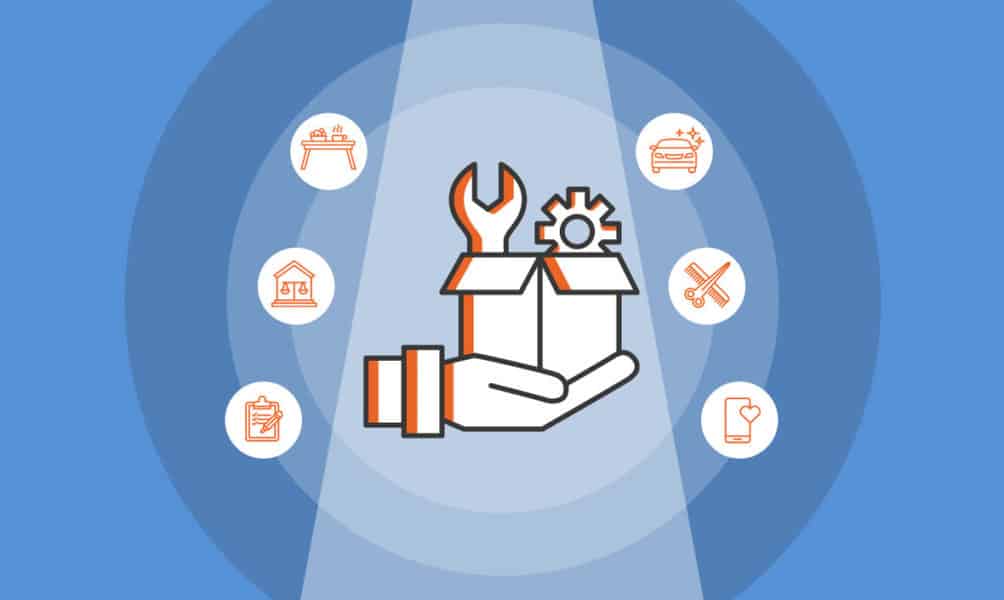
57 In-Demand Service Business Ideas You Can Launch Today
David Lepeska
Published on December 1, 2022
The services sector is undoubtedly the biggest economic sector in the US as it accounts for nearly 70% of the country’s gross domestic product. It ...
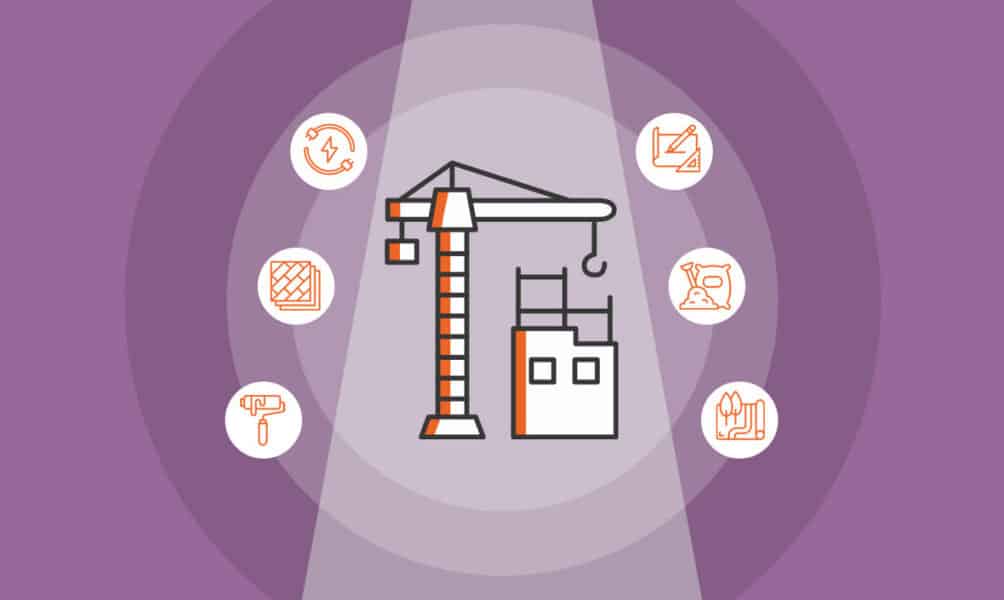
24 Profitable Construction Business Ideas
Published on July 13, 2022
As the US economy regains strength in the wake of the pandemic, the construction industry is anticipating strong growth with plenty ofopportunities, ...
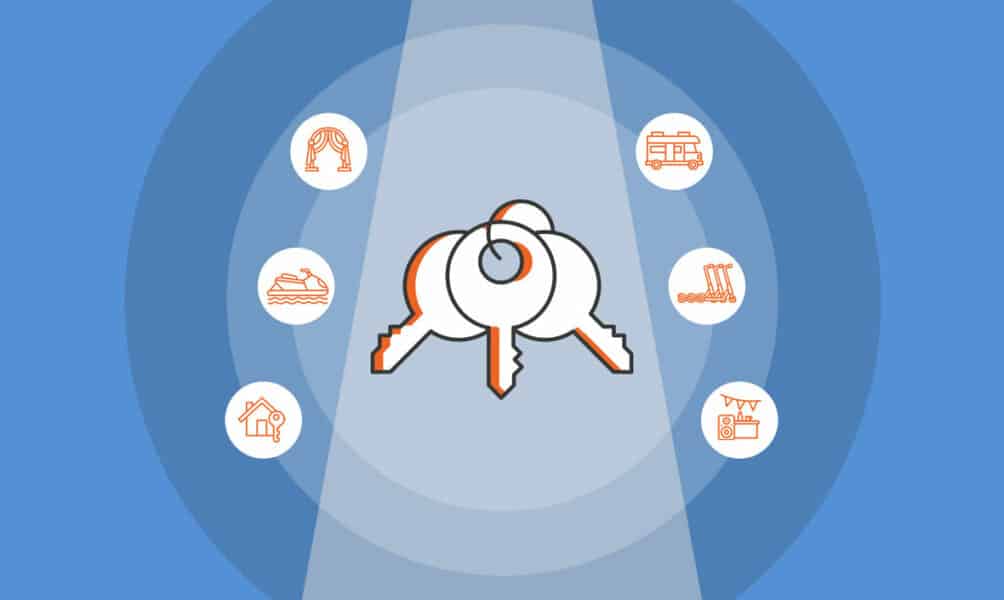
18 Leading Rental Business Ideas for Passive Income
Published on July 12, 2022
Businesses that rely on regular rental payments are guaranteed a steady stream of income, which is why so many of them draw so much entrepreneuriali ...
No thanks, I don't want to stay up to date on industry trends and news.

Launching a Music Equipment Rental Business: A Comprehensive Guide
By alex ryzhkov, get full bundle.
| $169$99 | $59$39 | $39$29 | $15$9 | $25$15 | $15$9 | $15$9 | $15$9 | $19 |
The sound and music equipment rental industry has shown remarkable resilience and growth, particularly as live events and performances have rebounded post-pandemic. With an annual growth rate of over 5%, this sector continues to offer lucrative opportunities for entrepreneurs looking to start a sound equipment rental business or launch a music equipment rental company . In this article, we outline an essential 9-step checklist to open a sound and music rental service , guiding you through market analysis, financial planning, and operational strategies to ensure a successful entry into this vibrant market.
Related Blogs
- 7 Mistakes to Avoid When Starting a Sound Or Music Equipment Renting in the US?
- What Are The Top 9 Business Benefits Of Starting A Sound Or Music Equipment Renting Business?
- Sound Or Music Equipment Renting Business Idea Description in 5 W’s and 1 H Format
- Ultimate Checklist: Acquiring Sound & Music Equip Renting Biz!
- Earnings Potential for Sound Equipment Rental Owners
- 7 Crucial Metrics for Sound Equipment Rental Businesses
- How Much Does It Cost to Rent Sound Equipment?
- Boost Your Sound Business Now! Grab Our Winning Pitch Deck!
- Maximizing Revenue from Your Sound Equipment Rental Business
- What Are Nine Strategies To Effectively Promote And Advertise A Sound Or Music Equipment Renting Business?
- The Complete Guide To Sound Or Music Equipment Renting Business Financing And Raising Capital
- Strategies To Increase Your Sound Or Music Equipment Renting Sales & Profitability
- How To Sell Sound Or Music Equipment Renting Business Business in 9 Steps: Checklist
- What Are The Startup Costs For A Sound Rental Business?
- Valuing Sound/Music Equipment Rental Business: How?
- Crafting a Business Plan for Sound or Music Equipment Rentals: Key Insights
- Analyze market
- Develop business plan
- Model finances
- Acquire funding
- Obtain licenses/permits
- Procure inventory
- Arrange storage/maintenance
- Hire/train staff
- Execute marketing/launch
9-Steps To Start a Business
Before diving into the world of entrepreneurship, it's crucial to carefully plan and prepare. These preliminary steps ensure that your business starts on a strong foundation, increasing its chance for success in the competitive marketplace.
| Step | Description | Average Time Needed | Average Cost (USD) |
|---|---|---|---|
| Market Analysis | Assess the demand and competition for sound equipment rental in your target area. | 1-2 months | $1,500 - $3,000 |
| Business Plan Development | Create a detailed plan outlining company operations, market strategies, and financial forecasts. | 1 month | $2,000 - $4,000 |
| Financial Modeling | Construct financial projections and scenarios to plan for various business outcomes. | 3 weeks | $1,000 - $2,000 |
| Funding Acquisition | Identify and secure initial funding necessary to launch and sustain operations. | 1-3 months | $20,000 - $100,000+ |
| Licensing and Permits | Obtain required legal documents to operate the rental business lawfully. | 1-2 months | $500 - $2,000 |
| Inventory Procurement | Purchase or lease sound equipment needed for rental operations. | 1 month | $10,000 - $50,000 |
| Storage and Maintenance | Establish a facility for equipment storage and routine maintenance. | 1 month | $2,000 - $10,000 |
| Hiring and Training | Recruit and train staff in handling equipment, customer service, and logistics. | 1 month | $1,000 - $5,000 |
| Marketing and Launch | Implement a marketing strategy and host a launch event to introduce the business. | 1-2 months | $3,000 - $10,000 |
Market Analysis
Embarking on the journey to start a sound equipment rental business or launch a music equipment rental company necessitates a robust market analysis. This stage is pivotal for understanding the specific demand for sound and music equipment rentals within targeted regions. It involves an extensive review of various market components that can significantly impact the overall strategy and financial viability of your sound or music equipment renting venture.
- Identifying the types of events that frequently require sound and music equipment, such as concerts, corporate events, weddings, and private parties, provides insight into potential market segments.
- Assessing the size of the target market is crucial. This involves analyzing population demographics, event hosting frequency, and the presence of complementary businesses like event planning services.
- Evaluating prevalent market rates for renting audio equipment helps in setting competitive yet profitable pricing structures. It’s essential to consider factors such as equipment type, brand, condition, and rental duration.
Additionally, a thorough sound equipment rental market analysis also includes identifying potential competitors. Understanding their service offerings, pricing models, and market reach can help differentiate your service and identify potential gaps in the market. This step is critical for carving out a niche in the event equipment rental business .
Key Tips for Effective Market Analysis
- Utilize online tools and resources for gathering data on local events and potential competitors to streamline the research process.
- Engage with event planners and venue owners to gain insights into the industry’s needs and equipment preferences.
- Analyze social media and online forums where event organizers and attendees discuss their experiences, which can provide informal yet valuable market intelligence.
By conducting a detailed market analysis, aspiring entrepreneurs can establish a solid foundation for their sound system rental business . This step not only aids in understanding the current landscape but also helps in predicting future trends, ultimately guiding strategic decisions for launching a successful music equipment rental startup .
| Sound Or Music Equipment Renting Business Plan Get Template |
Business Plan Development
Developing a comprehensive business plan is essential when you start a sound equipment rental business or launch a music equipment rental company . This foundational document should clearly delineate your company's mission, the range of services offered, and the specific markets you plan to target. Additionally, an effective business plan will lay out your operational structure, detail your marketing strategies, and project financial outcomes.
The mission statement should reflect your company’s core values and goals, setting the tone for business operations and customer interactions. Your service offerings need to be clearly defined, whether you're specializing in high-end audio systems for large events or offering a broad range of equipment suitable for various performance needs. Understanding your target market—whether professionals, educational institutions, or event organizers—is crucial for tailoring your marketing and operational strategies.
An operational structure, critical for both internal efficiency and external perceptions, should detail the roles and responsibilities within your company. This includes leadership positions, customer service protocols, and logistics for delivery and setup of equipment. Marketing strategies must be both innovative and practical, utilizing digital platforms and industry networks to reach your intended audience.
Financial projections are pivotal, offering both you and potential investors a clear picture of expected revenues, costs, and profitability. This section should include a break-even analysis for equipment rental , revenue projections based on market analysis, and scenarios for best and worst-case financial outcomes.
Key Tips for Effective Business Plan Development
- Utilize real data for your sound equipment rental market analysis to make informed projections and strategies.
- Engage with industry experts to refine your operational and marketing approaches, ensuring they are robust and competitive.
- Consider the scalability of your business model, allowing for future expansion in both inventory and geographic reach.
The business plan not only serves as an internal roadmap but also as a crucial tool in attracting investors for rental businesses . With detailed planning and a clear vision, your venture into the sound or music equipment renting industry is poised for success.
Financial Modeling
Developing a robust financial model is imperative for anyone aiming to launch a music equipment rental company or start a sound equipment rental business . This model will serve as a cornerstone for your business, encompassing initial start-up costs, ongoing expenses, and revenue projections. Additionally, you will need to conduct a thorough break-even analysis for equipment rental to understand when your business can expect to start turning a profit.
A detailed financial model should factor in both variable and fixed costs, from the purchase of sound equipment rental inventory to overhead such as rent and salaries. Revenue predictions should be grounded in realistic market expectations, supported by a sound equipment rental market analysis . It's crucial to outline different financial scenarios including best-case, moderate, and worst-case to prepare for fluctuations in market conditions.
Top Financial Planning Tips
- Continuously refine your financial model based on real-world data as your music equipment rental startup evolves, ensuring more precise forecasting and budget allocation.
- Utilize professional financial modeling software to aid in complex calculations and scenario planning, enhancing the accuracy of your predictions.
- Engage with a financial advisor familiar with the event equipment rental business to validate your figures and assumptions.
For the most comprehensive financial preparation, include detailed assessments of potential risks and opportunities. This could involve analyzing the impact of economic downturns or spikes in demand during peak seasons. Understanding these dynamics will equip you to manage your sound and music rental service more effectively, steering it towards sustained profitability.
Lastly, incorporate music equipment financial modeling insights to attract potential investors. Showcasing a well-prepared financial plan can demonstrate the viability and scalability of your business, which is crucial in securing funding for sound equipment rental business . Investors need to see not only the potential for profitability but also that you have a clear handle on the financial ins and outs of the industry.
| Sound Or Music Equipment Renting Financial Model Get Template |
Funding Acquisition
Securing the necessary capital is a pivotal step for those looking to start a sound equipment rental business or launch a music equipment rental company . A well-rounded approach to funding can cover both initial investments and ongoing operational costs. Various funding options are available, each catering to different business needs and stages of development.
- Small business loans provide a conventional route, typically offering structured repayment plans. It's essential to have a robust sound equipment rental business plan to qualify for such loans from banks and credit institutions.
- Angel investors and venture capital funds are suitable for businesses that demonstrate high-growth potential in the sound equipment rental market analysis . These investors not only provide capital but can also offer valuable mentorship and industry connections.
- Personal savings might be considered for those who prefer not to accrue debt. This method avoids interest fees and complex funding negotiations.
To attract the right investors, prepare a persuasive pitch focusing on the robust market potential and promising returns on investment highlighted in your music equipment financial modeling . Demonstrating a deep understanding of your target market, competitive edges, and projected financial pathways is crucial.
Key Tips for Effective Funding Acquisition
- Clearly articulate the uniqueness of your sound or music equipment renting service, distinguishing it from competitors in the event equipment rental business .
- Utilize detailed revenue projections and break-even analysis from your financial planning to reassure potential investors of your business’s viability.
- Prepare to answer tough questions; deep dives into your sound equipment rental inventory management plans and music equipment storage and maintenance protocols can build confidence in your operational expertise.
Licensing and Permits
Ensuring that your sound or music equipment renting business operates legally is pivotal. This step involves obtaining all required licenses and permits to comply with local, state, and federal regulations. These legal prerequisites vary depending on the location but typically include a general business license, a tax registration certificate, and special permits for handling and transporting sensitive electronic equipment.
Begin by consulting with your local city or county clerk's office to determine the specific requirements for your area. They will guide you through the process of securing a business license, which establishes your company as a legitimate entity. Additionally, if your sound or music equipment rental business operates across state lines, you may need to acquire licenses in multiple states.
Tax registration is also critical; you will need to register with the IRS and your state's revenue agency to obtain a Taxpayer Identification Number (TIN) or Employer Identification Number (EIN). This will allow you to collect sales tax on rentals, an essential aspect of your revenue stream.
For businesses dealing with sound and music equipment, special handling and transport permits might be required. These permits ensure that you are compliant with safety and environmental standards when moving equipment from one location to another.
Key Tips for Navigating Licensing and Permits
- Always double-check for local zoning requirements to ensure that your storage and operations facilities comply with municipal regulations.
- Consider consulting with a business attorney who specializes in commercial licensing to navigate state-specific laws and multi-state operations.
- Keep a calendar of renewal dates for all permits and licenses to avoid lapses and ensure continuous legal operation.
After securing all necessary sound equipment rental permits and music equipment rental licenses , you can focus on other aspects of setting up your business, confident in the knowledge that your legal foundations are solid. Remember, the effort you put into this step not only protects you against potential legal issues but also builds trust with clients who know they are dealing with a professionally recognized entity in the sound system rental business.
Inventory Procurement
The cornerstone of launching a music equipment rental company or starting a sound equipment rental business is robust inventory procurement. Sourcing high-quality sound and music equipment from dependable manufacturers or wholesalers is pivotal. Assess both purchasing and leasing options to identify which aligns best with your financial model and business strategy. It is essential to offer a diverse range of equipment that can accommodate various event sizes and meet specific client demands.
To ensure the sustainability and growth of your sound or music equipment renting business, consider the following mix of inventory strategies:
- Establish relationships with multiple suppliers to guarantee equipment availability and competitive pricing.
- Consider the latest technology trends in the audio equipment sector to keep your inventory up-to-date and appealing.
- Balance your investment in premium, high-demand equipment with more standard, frequently used items to cater to a broader client base.
Expert Tips for Procuring Equipment
- Analyze customer feedback and usage data to tailor your inventory to prevalent market needs and preferences.
- Explore opportunities for bulk purchases or long-term leasing contracts to optimize cost-efficiency.
- Stay informed about new releases and technological advancements in sound and music equipment to maintain a competitive edge.
Optimizing your approach to inventory procurement will not only enhance the operational efficiency of your sound system rental business but also bolster its reputation among target clientele. A well-thought-out selection of audio equipment rental inventory , combined with strategic acquisition tactics, will pave the way for the successful scale-up of your event equipment rental business.
Storage and Maintenance
Efficient storage and consistent maintenance are pivotal for the success of a Sound or Music Equipment Renting business. It is essential to secure a facility that not only accommodates your entire inventory but also supports the technical needs for regular maintenance checks. The right environment ensures that all equipment remains in optimal working condition , crucial for customer satisfaction and business reputation.
Choosing a location with easy access to major transportation routes is strategic for streamlining logistics. This accessibility enhances the efficiency of delivery and pickup, essential factors in a fast-paced event equipment rental business. Additionally, ample space must be allocated within the facility for different categories of equipment, each requiring unique storage conditions.
Regular maintenance checks are crucial. These checks not only extend the lifespan of the equipment but also ensure reliability during critical event performances. Effective maintenance reduces the likelihood of equipment failures that can impact client experiences negatively.
Pro Tips for Effective Storage and Maintenance
- Invest in customizable shelving units to maximize space and protect sensitive equipment from potential damage.
- Implement a climate-controlled environment to prevent humidity and temperature fluctuations that can harm electronic components.
- Utilize a digital inventory management system to track maintenance schedules and flag equipment that requires attention.
Additionally, consider security measures such as surveillance systems and restricted access areas to safeguard your valuable assets. A robust security protocol not only prevents theft but also instills confidence in your clients, knowing that their rented equipment is well-protected.
Ultimately, the goal is to create a system that supports the scalability of your Sound or Music Equipment Renting business, accommodating increases in inventory and expansion of services without compromising on the quality of storage and maintenance.
Hiring and Training
The success of your Sound Or Music Equipment Renting business hinges significantly on the competence and dedication of your team. Key staff positions will likely include roles specific to audio equipment handling, customer service representatives, and logistics coordinators. Each role requires a unique skill set and personal attributes, making the hiring process critical to your operation.
Recruitment should focus on identifying candidates who not only have technical expertise in handling sound and music equipment but also excel in customer interactions and problem-solving. Experience in the event equipment rental business can be a valuable asset. However, personal traits such as reliability, communication skills, and a proactive work ethic are equally crucial.
Once the team is in place, training becomes the next pivotal step. Comprehensive training programs should be developed to ensure all employees are well-versed in the technical aspects of the equipment, understand the logistics of delivery and setup, and can execute exceptional customer service. Furthermore, your training program should emphasize the importance of safety protocols in handling and installing equipment.
Essential Tips for Effective Training in the Rental Business
- Implement a buddy system where new hires work alongside experienced staff to foster a hands-on learning environment.
- Utilize manufacturer resources, such as manuals and online tutorials, to create detailed guides and training material specific to the equipment in your inventory.
- Schedule regular training refreshers to keep the team up-to-date with new equipment and technologies entering the market.
Ultimately, the goal is to equip your team not just with knowledge and skills related to renting audio equipment but also to instill a customer-first mindset. This approach will ensure that all interactions and services provided align with the high standards your Sound Or Music Equipment Renting business aims to uphold.
Marketing And Launch
Success in the Sound Or Music Equipment Renting business significantly hinges on a compelling marketing strategy that effectively communicates the value and services your business offers. As the final preparatory stage, this phase is instrumental in establishing your footprint in the market.
Initially, harness the power of both online and offline marketing channels. In the digital realm, social media platforms such as Instagram, Facebook, and LinkedIn are invaluable for engaging directly with your target audience, which includes event organizers, wedding planners, and music festival coordinators. Complement this with content marketing through event industry publications to enhance visibility among professionals.
Partnerships with event planners and venues can provide a steady stream of referrals and are crucial for gaining a foothold in the rental landscape. Direct outreach initiatives, such as personalized emails or calls to potential large-scale clients like concert organizers, can help forge these vital connections.
Planning a launch event is an effective tactic to drum up excitement and show potential customers the range and quality of your equipment firsthand. This event not only serves as a live demo but also as a networking opportunity to connect with influencers and decision-makers in the industry.
Key Tips for Effective Marketing:
- Use data-driven insights from your sound equipment rental market analysis to tailor your marketing strategies to the most promising segments.
- Invest in quality visual content that showcases your equipment's capabilities and range, making it appealing for promotional materials and social media.
- Regularly engage with your community online by sharing tips, event highlights, and customer testimonials to build trust and brand loyalty.
Finally, measure the impact of your marketing strategies through analytics and feedback. This continuous loop allows for adjustments and enhancements, ensuring your marketing efforts remain effective and your launch stands out in a competitive arena.
Starting a sound or music equipment rental business requires careful planning and execution, but by following these structured steps, you can establish a robust foundation for your new venture. From conducting detailed market analysis to launching with a strong marketing strategy, each phase is pivotal in ensuring the success of your business. By addressing financial logistics, operational dynamics, and customer engagement proactively, you are setting the stage for a profitable and sustainable enterprise in the vibrant event industry.
| Expert-built startup financial model templates |
Leave a comment
Your email address will not be published. Required fields are marked *
Please note, comments must be approved before they are published
Hahn Rental

For years we have been here in the Lewis-Clark Valley helping our customers with their rental equipment. We know the rental business, so for something special – Hahn has it!
We carry a full line of rental equipment for the homeowner or the professional contractor.
We have all the tools you need for any size project.
We provide 24 Hour emergency services by calling any Hahn Rental Center location.

HAHN RENTAL LOCATIONS & HOURS:
Lewiston orchards.
(208) 743-4246 324 Thain Rd., Lewiston, ID – Map HOURS: Mon. thru Sat. – 7:30am to 5:30pm Sun. – 9:00am to 2:00pm
Lewiston Downtown
(208) 748-4246 2121 Main St., Lewiston, ID – Map HOURS: Mon. thru Fri. – 7:30am to 5:30pm
(208) 883-4246 222 North Main St., Moscow, ID – Map HOURS: Mon. thru Sat. – 7:30am to 5:30pm Sun. -9:00am to 2:00pm
(208) 935-4246 116 W. 3rd St. HWY 12, Kamiah, ID – Map HOURS: Mon. thru Sat. – 7:30am to 5:30pm
Husqvarna is here to help you with all the tools and information you need to Master Your Great Outdoors.

RENTAL EQUIPMENT
AIR COMPRESSORS AIR HOSE & ACCESSORIES AIR TOOLS & EQUIPMENT ATTACHMENTS AUTOMOTIVE BLASTING EQUIPMENT BREAKER & DRILL STEELS BUILDER & CONTRACTOR TOOLS CARPENTER TOOLS COMPACTION EQUIPMENT CONCRETE EQUIPMENT CRANES & BOOM TRUCKS DIAMOND BLADES & BITS DRYWALL EQUIPMENT ELECTRICAL CORDS & ACCESSORIES FANS, AIR BLOWER & MOVERS FLOOR CARE FORKLIFTS & ACCESSORIES FUEL & LP TANKS GENERATORS & WELDERS GRUNDOMAT HEATERS & ACCESSORIES HOISTS JACKS LADDERS LAWN & GARDEN MANLIFTS MINI TRACK SKIDSTEER OFFICE TRAILERS & ACCESSORIES MOVING AIDS PAINTING & PAINT REMOVAL PLUMBING & DRAIN CLEANING PORTABLE RESTROOMS & SUPPLIES PRESSURE WASHERS & ACCESSORIES PULLERS PUMPS ROTO/DRILL HAMMERS / BITS SCAFFOLDING SOCKETS STORAGE TRAILERS/CONTAINERS TRACTORS & LOADERS TRAILERS TRENCHING EQUIPMENT WORK LIGHTS
(208) 743-4246 324 Thain Rd. Map Monday thru Saturday 7:30am to 5:30pm Sunday 9:00am to 2:00pm
HAHN SUPPLY CENTER
(208) 743-1577 2101 Main St., Lewiston, ID Map Monday thru Friday 7:30am to 5:00pm
LEWISTON ORCHARDS
Lewiston downtown.
(208) 748-4246 2121 Main St. Map Monday thru Saturday 7:30am to 5:30pm
(208) 883-4246 222 North Main St. Map Monday thru Saturday 7:30am to 5:30pm Sunday 9:00am to 2:00pm
(208) 935-4246 116 W. 3rd St. HWY 12 Map Monday thru Saturday 7:30am to 5:30pm

Virtual Tour
Experience University of Idaho with a virtual tour. Explore now
- Discover a Career
- Find a Major
- Experience U of I Life
More Resources
- Admitted Students
- International Students
Take Action
- Find Financial Aid
- View Deadlines
- Find Your Rep

Helping to ensure U of I is a safe and engaging place for students to learn and be successful. Read about Title IX.
Get Involved
- Clubs & Volunteer Opportunities
- Recreation and Wellbeing
- Student Government
- Student Sustainability Cooperative
- Academic Assistance
- Safety & Security
- Career Services
- Health & Wellness Services
- Register for Classes
- Dates & Deadlines
- Financial Aid
- Sustainable Solutions
- U of I Library

- Upcoming Events
Review the events calendar.
Stay Connected
- Vandal Family Newsletter
- Here We Have Idaho Magazine
- Living on Campus
- Campus Safety
- About Moscow

The largest Vandal Family reunion of the year. Check dates.
Benefits and Services
- Vandal Voyagers Program
- Vandal License Plate
- Submit Class Notes
- Make a Gift
- View Events
- Alumni Chapters
- University Magazine
- Alumni Newsletter

SlateConnect
U of I's web-based retention and advising tool provides an efficient way to guide and support students on their road to graduation. Login to SlateConnect.
Common Tools
- Administrative Procedures Manual (APM)
- Class Schedule
- OIT Tech Support
- Academic Dates & Deadlines
- U of I Retirees Association
- Faculty Senate
- Staff Council
Administrative and Business Operations
Campus locations.
Physical Address: Bruce M. Pitman Center 875 Perimeter Drive MS 4264 Moscow, ID 83844-4264 [email protected] uidaho.edu
Phone: 208-885-6111
Fax: 208-885-9119
Equipment Rental
Events and Conferences maintains an extensive event production inventory. Please reach out to our team for availability and pricing of our equipment. No matter the size of your event, we can help make it a reality. Contact our support team at 208-885-6956 or email us at [email protected] to discuss our specific rental inventory and pricing.
A few of the services we offer include:
Audio Systems
We have a wide variety of audio systems available for rental. Whether you are looking for a single microphone and speaker system to a full concert setup, we have the equipment to assist.
Canopies and Tents
We maintain canopy and tent systems to transform any outdoor environment and make it perfect for your event.
Pipe and Drape
We have extensive pipe and draping options available to help configure spaces and provide ambiance.
Stage and Theatrical Lighting
Our stage lighting systems are configurable for a variety of venues and event types.
Our professional staging systems are configurable to a variety of sizes and specifications. Full ramps are available for ADA compliance.
Tables and Chairs
We have everything you need for tables and chairs at competitive rates.
Video Systems
We offer a full range of video support systems, from portable HD display monitors and projectors, to large scale video walls. We also offer HD video camera systems and switching.
- production services
- FILM PERMITS
- EQUIPMENT RENTAL
- LOCATION SCOUTING
- TRANSPORT SERVICES
- RISK ASSESMENT
- STUDIO RENTAL
- DRONE FILMING
- LEGAL CONSULT
- INTERNATIONAL COORDINATION
- COMMERCIALS
- documentaries
- broadcast & stream
- corporate videos
- SAINT PETERSBURG
- IRKUTSK AND LAKE BAIKAL
- VLADIVOSTOK
- EKATERINBURG
- Arkhangelsk
- PERESLAVL ZALESSKY
- VLADIMIR AND SUZDAL
- SERGEEV POSAD
- about russia
- general information
- local laws and regulations
- drone and aerial filming
- Our projects
Filming equipment rental in Saint Petersburg and Moscow: Cameras, sound equipment, lights
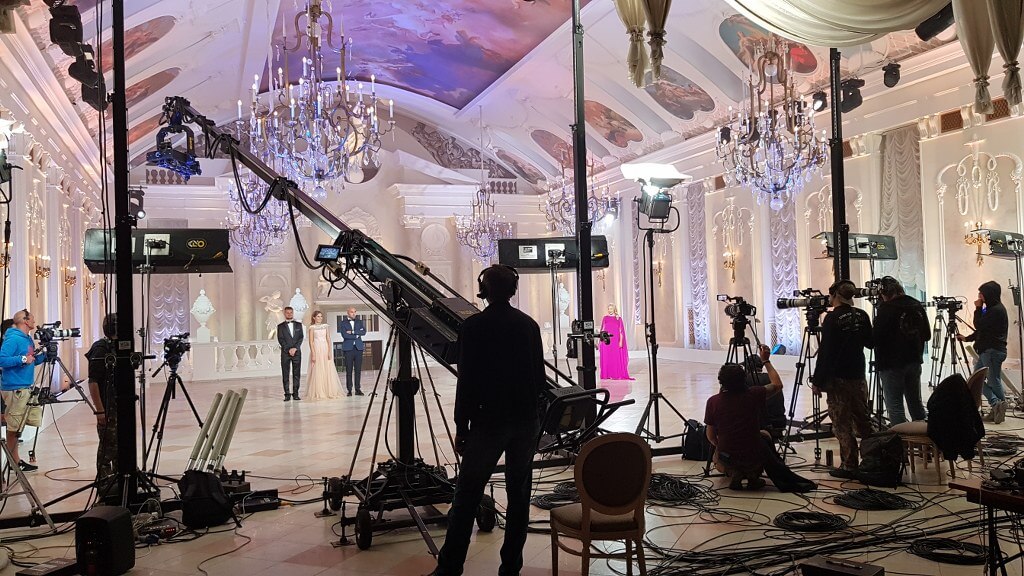
renting professional video equipment in moscow, saint petersburg, VLADIVOSTOK AND IRKUTSK. Terms, Conditions, availability.
FilmspbTV will gladly help you to find the required equipment for the realization of your project in Russia. Equipment hire in Saint Petersburg and Moscow is one of the production services our company provides for foreign film crews.
We provide rental services throughout Russia. The main equipment warehouses are situated in Moscow and St Petersburg. In both cities we work with several reliable rental companies to propose the best relation of price and quality.
If it’s the first time we work with your company and we don’t have a signed production contract – for renting any kind of equipment in these two cities you have two options:
You take the equipment accompanied by a camera or lights assistant from the rental. Or you can leave a cash deposit that equals to the cost of the equipment you rent.
Equipment hire in Irkutsk, Vladivostok, Yakutia, Sochi, Kazan or any other region of Russia is possible. Sadly the rentals at these cities have a very limited choice, so m ost probably the equipment will be flying from Moscow or St Petersburg. The equipment has to be accompanied or by a fixer from our production company or by an assistant from the rental. We will pack the equipment as carefully as possible and will make an estimate of the insurance for the transportation of the equipment.
Travel days are billed as 0.5 of a production day.
Lights vans, Grip trucks, Camera vans charge have their fees based on a 10 hours long working day. If the filming takes place outside the city a fee will be added to the transportation cost, depending on the distance from the city limits.
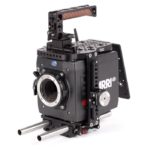
A compact and lightweight camera with a PL mount. One of the lightest cinema cameras on the market (2.3 kg). Easy in handling.
Arri Alexa mini is available for rental in Moscow and Saint Petersburg
- Sensor: 35mm ARRI ALEV III CMOS
- Codec: ProRes 4444XQ, 4444, 422(HQ), 422, 422(LT) MXF/ARRIRAW
- Resolución: Up to 4k UHD
- Recording Frame rates: Up to 200 fps
- Mount: PL / EF
Renting this camera in other regions is possible only via delivery from Moscow or Saint Petersburg.
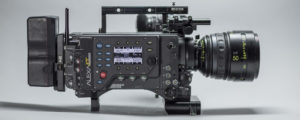
This Arri camera has a lot of improvements to the previous models.
Available for rental in Moscow and Saint Petersburg
- Sensor: Alev III 16:9 – 4:3 – Open Gate
- Resolution: Up to 3.2k
- Mount: PL Mount with LDS
- Format: ARRIRAW, Apple ProRES
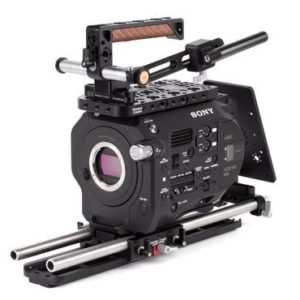
Sony PXW FS-7
A 4K professional camcoder
The Sony PXW FS-7 camera is available for rental in Moscow and Saint Petersburg.
- 8.8MP 4K S35 CMOS sensor
- UHD 4K 60p, 4K RAW (with recorder)
- Dual HD/3G-SDI & HDMI Output
- 10-bit 4:2:2 in 4K DCI
- 14 stops of dynamic range plus built-in ND filter wheel
Renting this camera in other Russian regions is possible only via delivery from Moscow or Saint Petersburg.
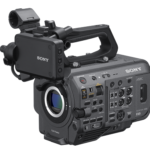
The FX9 has a Full Frame 6K dual native ISO sensor. The 6K Exmor R CMOS sensor allows you to film 4K with totally cinematic deoth of field. Recording up to 10-bit 4:2:2 UHD 4K at 60p.
Sony PXW FX-9 camera is available for rental only in Moscow.
- Records up to XAVC-I 10-bit 4:2:2 in UHD 4K/60p to XQD media
- S-cinetone color profile
- Improved hybrid autofocus & dynamic range
- Dynamic range of 15 stops
- E mount lenses
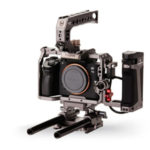
A full-frame mirrorless camera. Very cheap for rent.
This camera is available for hire in Moscow, Saint Petersburg, Kazan and Yekaterinburg.
- 12MP full-frame Exmor sensor
- UHD 4K 120p video
- 10-bit 4:2:2 internal recording
- 16-bit RAW output
- HLG and S-Log3 gammas
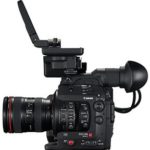
A great 4K cinema camera.
Available for rental in Moscow and Kazan.
- 8.85MP Super 35 mm Canon CMOS sensor
- Internal 4:2:2 10-bit in 4K
- Up to 4:4:4 12-bit in 2K
- Up to 120p in 2K
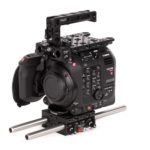
A 5.9K Full-Frame camera with the EF mount. Cinema-quality camera able to record RAW light.
Available for rental only in Moscow
- Super 35mm CMOS sensor 8.85 MP
- Up to 4k RAW (External)
- RAW, RGB, MPEG-2 MXF
- EF-mount lens
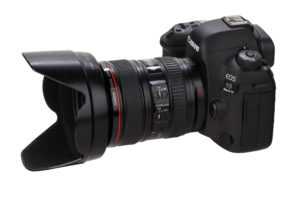
Camera available for rental in Moscow, Saint Petersburg, Kazan, Ekaterinburg, Novosibirksk, Krasnoyarsk, Vladivostok
- 30.4MP full-frame CMOS sensor
- DIGIC 6+ image processor
- DCI 4K capture at 29.97 fps
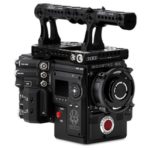
Camera brain fully compatible with RED DSMC2 components
Available for rental in Moscow and St Petersburg
- 5K, Super 35, dual-ISO, CMOS sensor
- Frame rates up tp to 96fps at 5K & 300fps at 2K
- Full-sensor 4K ProRes & DNx
- PL or EF Mount
- REDCODE / Apple ProRes / AVID

An affordabable Digital cinema camera.
Available for rent in Moscow and Saint Petersburg
- 4.6K Super 35mm sensor
- Fifteen-stop dynamic range
- 4.6K up to 120 fps
- 300 fps at 1080p
- Active Canon EF mount
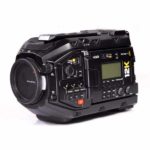
A 12K cinema camera
Camera available for hire in Moscow and Saint Petersburg
- 12K Super35 sensor with 14-stop dynamic range
- PL mount with Cooke i/Technology
- Sensor Resolution Effective: 79.6 Megapixel (12,288 x 6480)
- Gold Mount battery plate
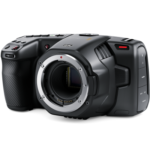
A Compact DSLR mirrorless camera.
Camera available for rent in Moscow, St Petersburg and Kazan.
- Super35, 23.1 × 12.99mm, CMOS sensor
- 6K capture to RAW and ProRes
- Records to CFast 2.0, SD UHS-II, & external USB-C drives
The complete list of cameras available for rental in Saint Petersburg and Moscow can be requested via WhatsApp or via email.
Sound equipment available for rental in Moscow and Saint Petersburg
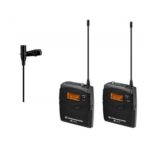
Sennheiser ew 135-p G3 (G2)
Microphones available for rental in Saint Petersburg and Moscow: Sony ECM-NV1 Microphone
Audio-Technica AT875R Microphone
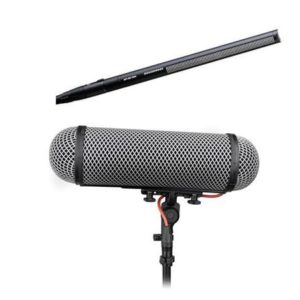
Sennheiser MD 46
Beyerdynamic M 59 N(C)
Rycote Boom Kit
Sennheiser MKH-416
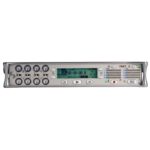
Sound Devices 788t
Sound Devices 688 Field Mixer/Recorder
Zoom H6 Handy Recorder
Zoom H4 Handy Recorder
Sound Mixers available for rental in Saint Petersburg and Moscow
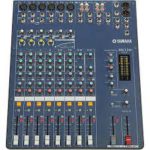
Yamaha MG-102c
Soundcraft Notepad-8FX
Lighting equipment available for rental in Moscow and Saint Petersburg
LED lights available for hire in Moscow and Saint Petersburg
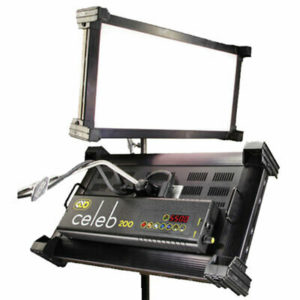
Kino Flo lights available for rental in Moscow and Saint Petersburg
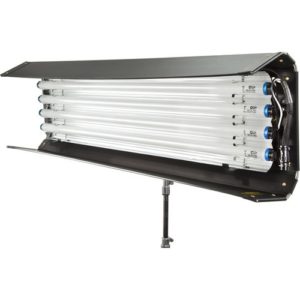
Tungsten lights available for rental in Moscow and Saint Petersburg
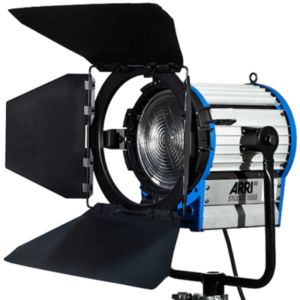
ARRI 300W FRESNEL
ARRI 650W FRESNEL
ARRI Studio 5000W FRESNEL
ARRI Junior 5000W FRESNEL
ARRI Studio 2000W FRESNEL
ARRI Junior 2000W FRESNEL
ARRI Studio 1000W FRESNEL
ARRI Junior Plus 1000W FRESNEL
ARRI Junior Plus 650W FRESNEL
SPACELIGHT 2000W
Grip, stands and frames available for hire in Moscow and Saint Petersburg
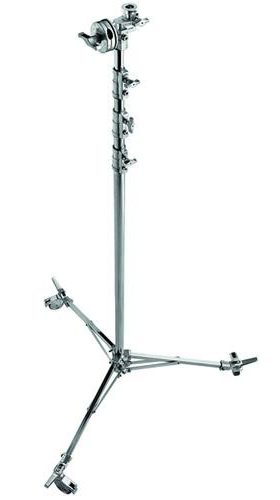
C stand 20″
Wind-Up Stainless Steel Stand
High Combo Stand 3 Risers
Combo Stand 2 Risers
Low Combo Stand
Mini Low Combo Stand
High Overhead Roller Stand
Super High Overhead Stand
40″ Extension Grip Arm
20″ Extension Grip Arm
Junior boom
Jumbo Grip Head
Super clamp
Frames (4×4, 6×6, 8×8)
FG Wilson generator 100 KW
GMGen Generator 60 KW
Honda generator 10 KW
Honda generator 5 KW
Honda generator 2 KW
Distribution cables
Streaming, broadcast and multi-camera equipment available for rental in Russia
Live, remote production and monitoring equipment available for rental in Moscow and Saint Petersburg Blackmagic ATEM Television StudioLive and streaming equipment for rental in Saint Petersburg Blackmagic ATEM 1 M/E Broadcast Panel Panasonic AG-HMX 100 Panasonic AV-HS450 ATEM Television Studio HD ATEM Constellation 8K Blackmagic HyperDeck Studio Blackmagic DeckLink Quad Blackmagic DeckLink Duo Blackmagic UltraStudio Mini Recorder Blackmagic Smart Videohub 20×20 Teradek Serv Pro Vaxis Storm 500ft Mini IDX CW-5HD Cam-Wave HD AJA Ki Pro Rack DJI Lightbridge 2 ATOMOS Shogun 7″ Teleview TLW-LCD170LK Set 25″ VIDEOSERVICE VSS-17 Set 25″ TVLogic LVM-173W-3G 17″ TVLogic LVM-172W 17″ TVLogic LVM 071W 7” Blackmagic SmartView HD 17″ Samsung 50″ IIyama ProLite X2377HDS 23″
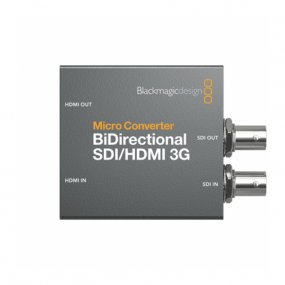
Grip and accessories available for rental in Moscow and Saint Petersburg
Tripods and heads available for rental in Moscow and Saint Petersburg
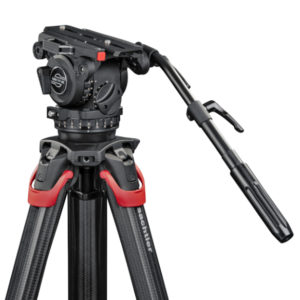
SACHTLER Studio 9+9 150mm O’CONNOR 2575C 150mm Sachtler Video 60 Plus 150mm ball base SACHTLER Studio II 7+7 with 150mm ball base O’CONNOR 2560 150mm Sachtler Video 20 Plus 100mm Ball base Sachtler DV 12 SB Sachtler Video 18 Manfrotto MVH502AH
Camera stabilization systems and gimbals available for rental in Moscow and Saint Petersburg
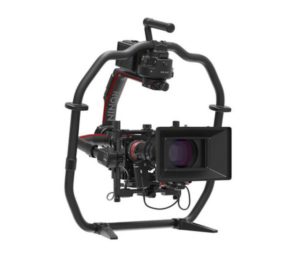
Sliders and dolly available for rental in Moscow and Saint Petersburg
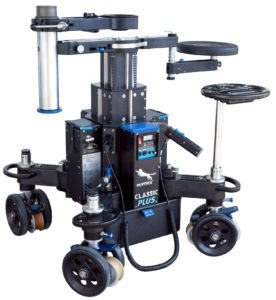
SUPER PANTHER EVOLUTION III MOVIETECH “MAGNUM” DOLLY HUSKY DOLLY Rails
Jibs and cranes available for hire in Moscow and Saint Petersburg
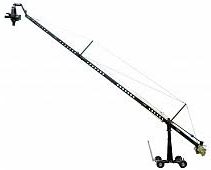
Russian film crew available for hire in St Petersburg and Moscow
FilmspbTV can help you with finding English speaking professional film crew members. We work with great, reliable professionals. Here’s a list of crew members that we can source in Moscow and St Petersburg: DOP, Camerman, Soundman, Gaffer, lights assistants, Dolly crew, Crane crew, DIT, Focuspuller, Set constructors and props masters, Stunts, Pyro, Broadcast engineers, Drivers, Casting directors, Actors, Makeup artists, Stylists, Wardrobe assistants. The rates depend on the exact person, but all in all Russian film crew members are very professional and their rates are significantly lower than in US or in UK. Some good cameraman can be found in Vladivostok, Ekaterinburg, Kazan and Kaliningrad. For all other cities the crew will need travelling from Moscow or St Petersburg.
[email protected]
CONTACT US ON TELEGRAM or whatsapp
+7 904 601-22-32

IMAGES
COMMENTS
The cost for the purchase of standard sound systems and public address systems - $100,000. The cost for the purchase of a truck - $10,000. Budget for paying at least 4 employees for 2 months plus utility bills - $60,000. Additional Expenditure (Business cards, Signage, Adverts and Promotions et al) - $2,500.
Now that we understand the potential of the sound equipment rental industry, let's dive into the 9 steps you need to follow to write a comprehensive business plan. These steps will help you set the foundation for a successful venture in this fast-growing market. Conduct market research. Identify your target audience.
Here, you'll find world-class guidance on a few key aspects of small business success. Business Plan Mechanics for Audio Equipment & Supplies Rental Businesses. If you're putting off writing a business plan because you're intimidated by the process, here are the words you've been dying to hear: Business plans for audio equipment and supplies ...
As of 2021, the sound and music equipment rental industry has been experiencing steady growth, with a projected Compound Annual Growth Rate (CAGR) of 6.2% from 2021-2026. In order to start a successful sound or music equipment renting business, it is crucial to have a well-thought-out business plan in place.
5. Stay up-to-date with industry trends and technology. To keep ahead of the competition in the rental market, it is crucial to stay current with technological advancements and industry trends. It's important to stay current with advancements in event planning and production techniques as well as equipment technology.
The largest North American equipment rental companies include United Rentals , Sunbelt Rentals, Herc Rentals, Home Depot Rentals, and Ahern Rentals. The total annual industry sales are over $50 billion, and the long-term growth rate is about 5% per year. Source: United Rentals and Equipment Radar.
Opening a sound equipment and systems sales, rental, and leasing business can get you on the path to a secure financial future if you do it right. ... To be reliable, your business plan can't include best guesses or intentional exaggerations. Instead, commit to creating the most precise business plan possible. As a further guide, consider what ...
Equipment rental business model. A business plan can serve as a guiding framework for your business, and acts as your roadmap to success. Your business plan should have all considerations of your business listed, explained, and planned for, ranging from logistical needs to overall short and long-term goals. While there is no explicit equipment ...
5 Tips for Running a Successful Equipter Rental Business (Equipter) Financing the Equipter (Equipter) One way to stay up to date with the happenings in the rental industry is to sign up for Equipter's quarterly newsletter, the Rental Insider. Enter your info below, select "Equipment Rental" in the Industry Detail dropdown, and you'll be all ...
This will help you determine how the machine was treated in a particular customer's care. 4. Marketing strategy. A marketing strategy is important for the growth of a company, and a brief outline of your strategy should be included in your rental equipment business plan. Here are two aspects to consider:
Executive Summary. The executive summary for your equipment rental business plan provides a succinct overview of your company, detailing the types of equipment available for rent, its market positioning, and the specific needs it addresses within the industry. It should outline the variety of equipment offered, the business's location, size, and a snapshot of daily operations.
Starting a rental equipment business in 2024 requires a strategic approach and a deep understanding of the market. These six steps provide a comprehensive roadmap, from ideation to execution, ensuring you build a solid foundation for your entrepreneurial venture. . 1. Identify Your Rental Business Idea. .
Writing a comprehensive business plan for a high-end audio equipment rental service is crucial for success in the competitive entertainment and events industry. By following these 9 steps, including identifying the target market, conducting market research, defining the unique value proposition, and establishing strong networks, you can set ...
The written part of an audiovisual equipment rental store business plan. The written part of an audiovisual equipment rental store business plan plays a key role: it lays out the plan of action you intend to execute to seize the commercial opportunity you've identified on the market and provides the context needed for the reader to decide if they believe your plan to be achievable and your ...
Step 4: Assess Your Pricing. Step 5: Naming and Branding Your Business. Step 6: Business Registration, Tax and Local Laws. Step 7: Website Creation and SEO. Step 8: Waivers and Rental Contracts. Step 9: Select a POS System. Step 10: Choose an Equipment Rental Software. Rental Software with Hubtiger.
In this article: Step 1: Identify an untapped market or niche. Step 2: Build a strong inventory of high-quality equipment. Step 3: Develop a clear and competitive pricing structure. Step 4: Promote your company and establish a solid reputation. Step 5: Deliver superb customer service.
Daily rental rates for most smaller tools average about $40. Your profit margin should be about 80%. In your first year or two, you might have 10 pieces of equipment and rent six of them five days per week, bringing in more than $62,000 in annual revenue. This would mean $50,000 in profit, assuming that 80% margin.
Finally, in the "ask" section, detail any funding requirements you may have. 2. The presentation of the company. As you build your audio equipment store business plan, the second section deserves attention as it delves into the structure and ownership, location, and management team of your company.
Business Plan Development. Developing a comprehensive business plan is essential when you start a sound equipment rental business or launch a music equipment rental company.This foundational document should clearly delineate your company's mission, the range of services offered, and the specific markets you plan to target.
Description: COLOR: DARK GRAY/DARK GRAY W/3 ROLL TP HOLDER. They have a fresh flushing system, stainless steel bowl, internal wash station, overhead. solar light, built- in paper towel receptacle, and large mirror. End users operate the flushing. system and hand wash station with a foot pump, which allows for hands-free, germ-free operation.
Lewiston Downtown (208) 748-4246 2121 Main St., Lewiston, ID - Map HOURS: Mon. thru Fri. - 7:30am to 5:30pm
Events and Conferences maintains an extensive event production inventory. Please reach out to our team for availability and pricing of our equipment. No matter the size of your event, we can help make it a reality. Contact our support team at 208-885-6956 or email us at [email protected] to discuss our specific rental inventory and pricing.
Equipment hire in Saint Petersburg and Moscow is one of the production services our company provides for foreign film crews. We provide rental services throughout Russia. The main equipment warehouses are situated in Moscow and St Petersburg. In both cities we work with several reliable rental companies to propose the best relation of price and ...